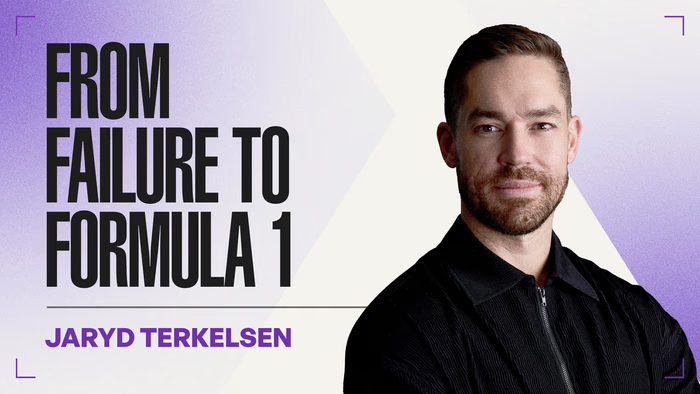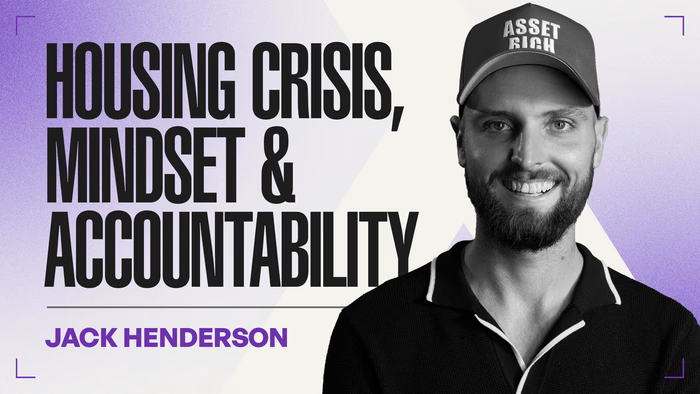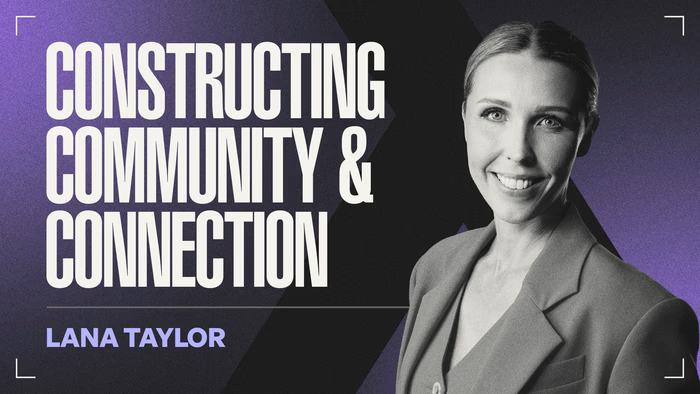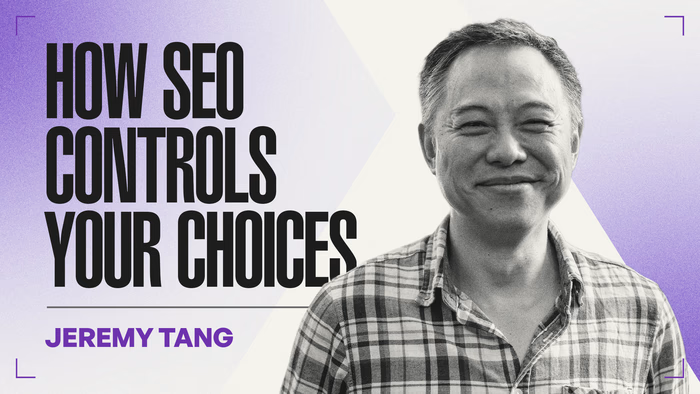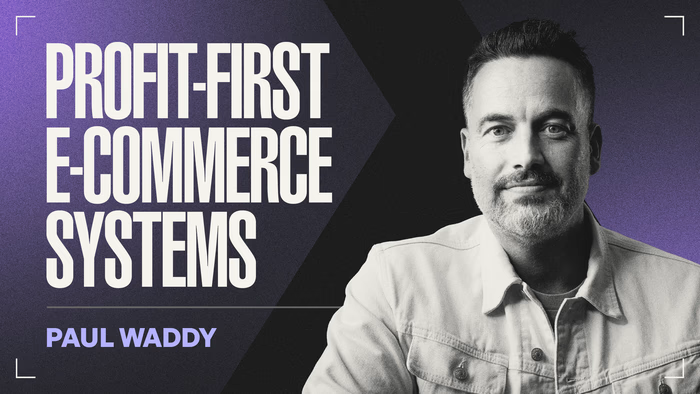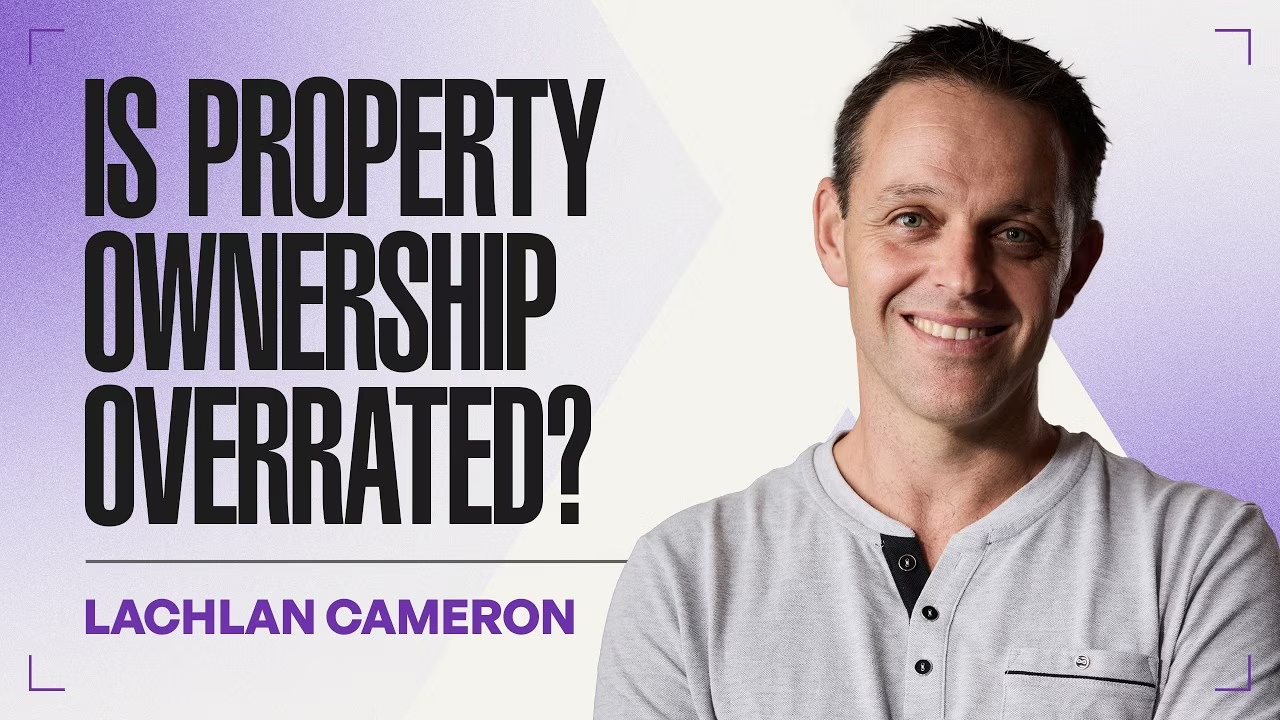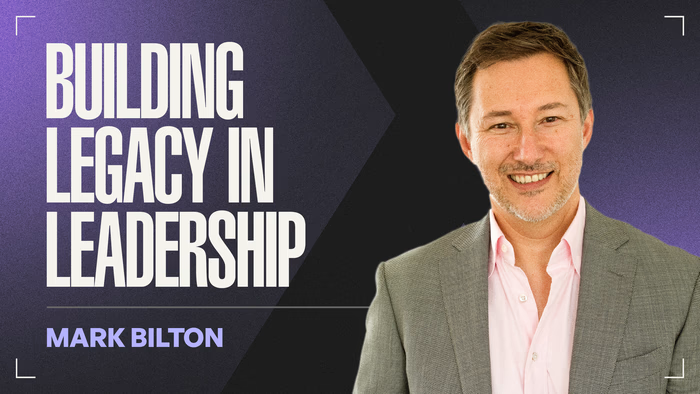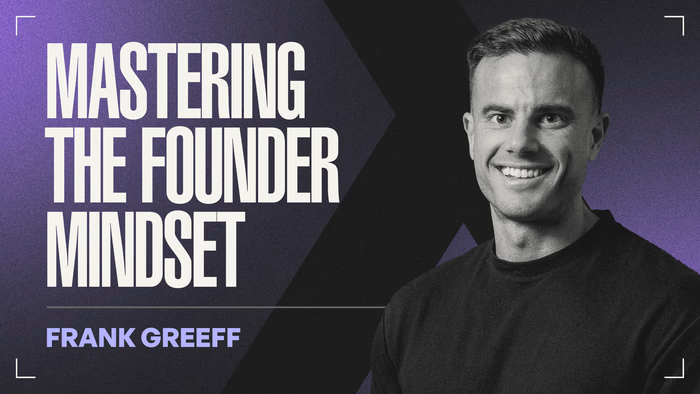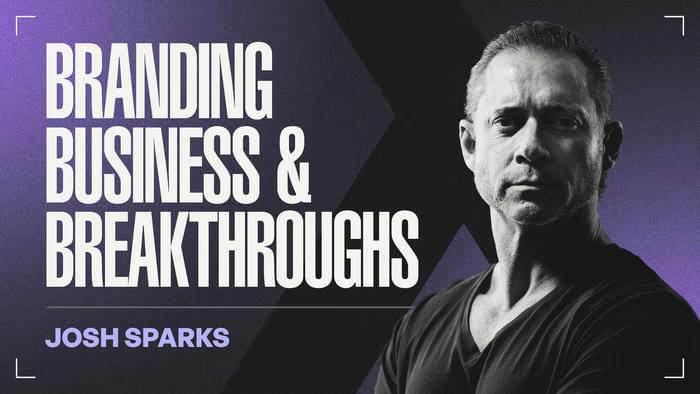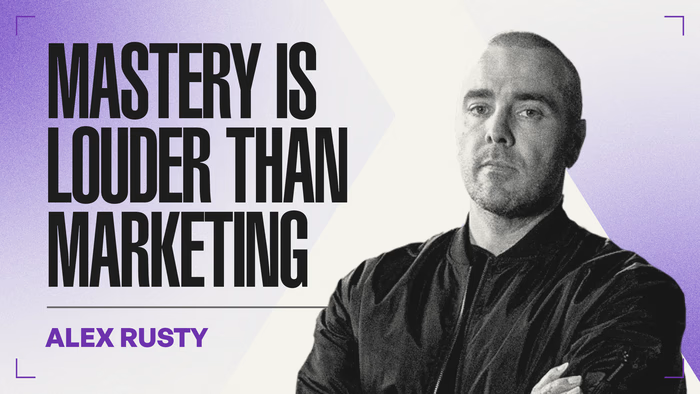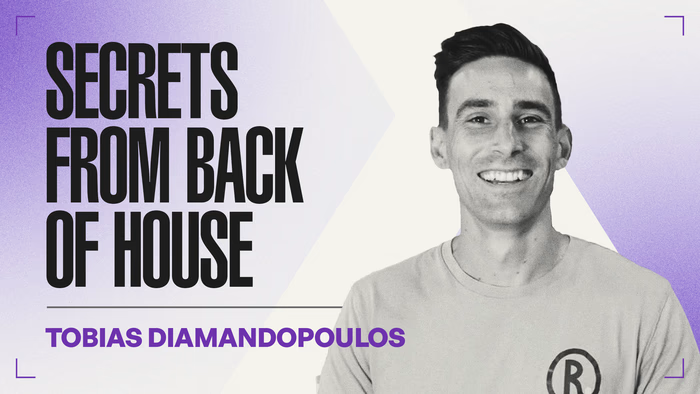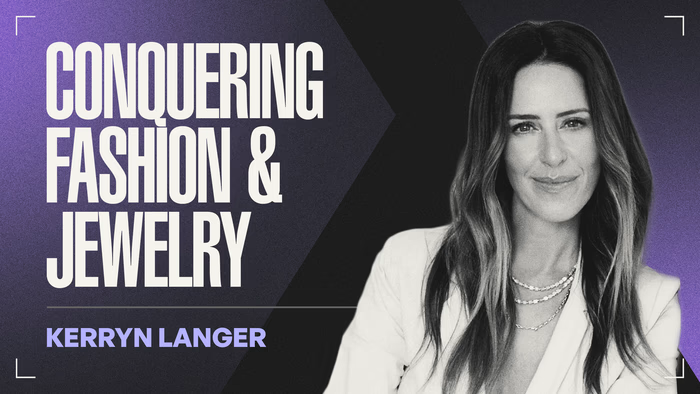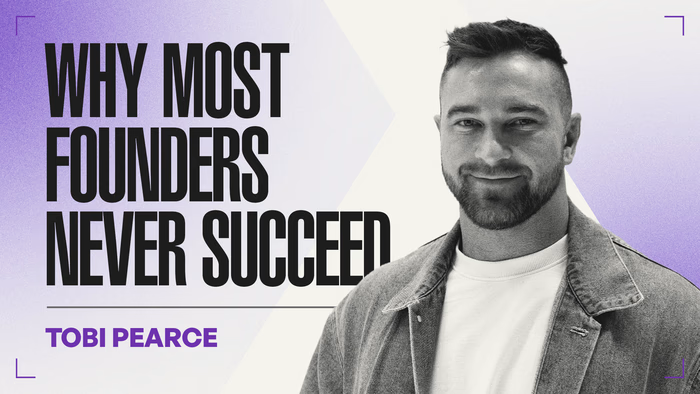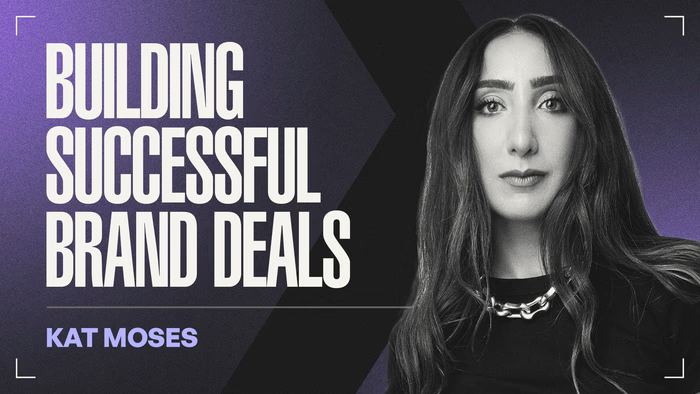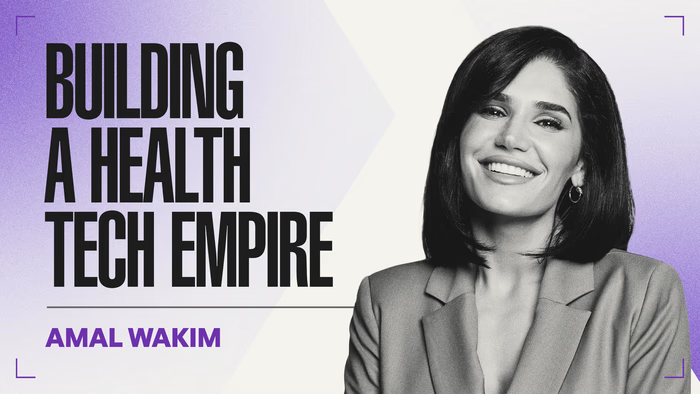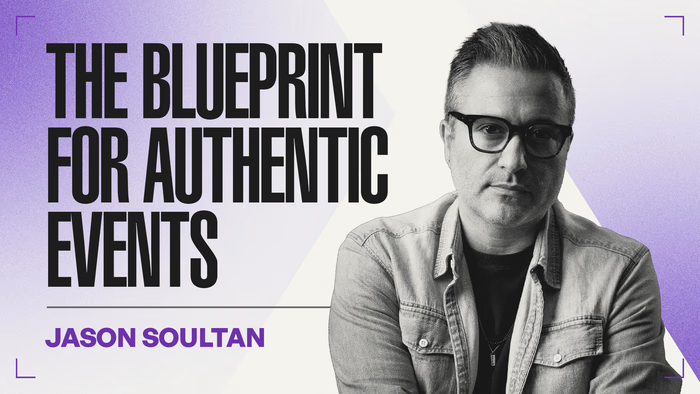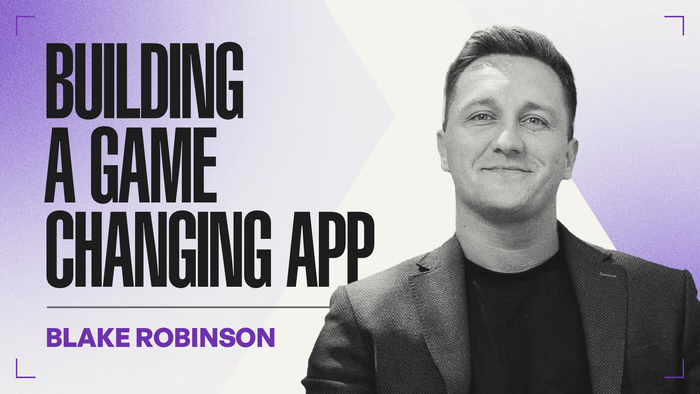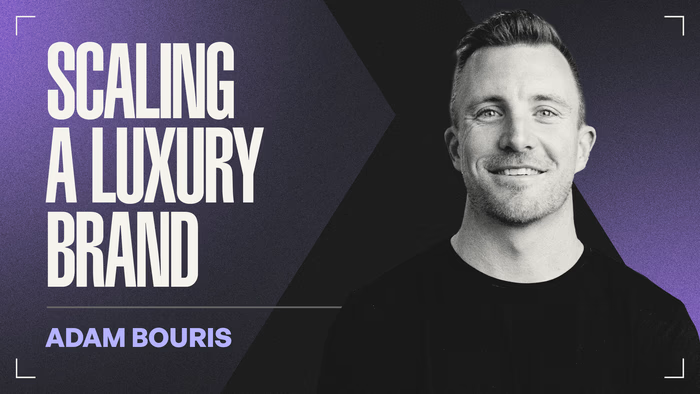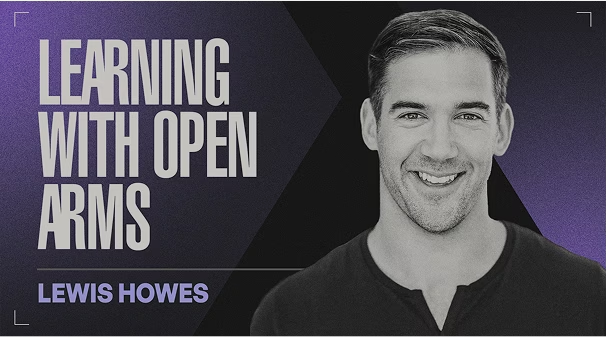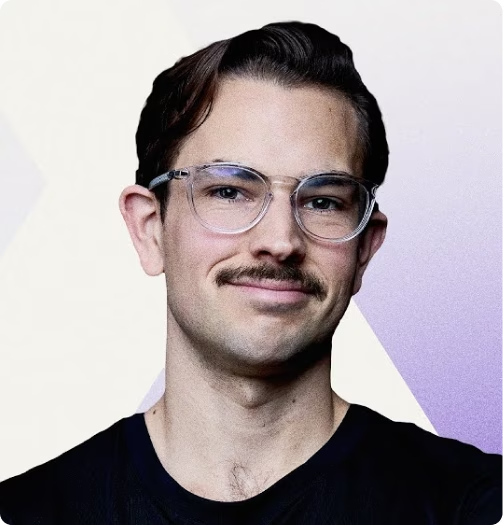


TLDR
Summary
Matt Lakajev, co-founder of 7 Figure Creators and a LinkedIn strategist, discusses his unconventional approach to generating over $3.5 million in sales on LinkedIn without relying on paid ads or virality. He advocates for high-agency thinking and a shift away from high-volume, generic outreach, instead prioritizing conviction in one's product and deep personalization in prospecting. Lakajev views LinkedIn as an old, uncompetitive platform where the barrier to entry is low and the value per follower is high, making it an ideal place for business development. A key focus is on addressing the psychological barriers that prevent founders from consistent outreach, primarily low self-trust stemming from constant social media comparison and a perpetual "sympathetic nervous state" (fight or flight). His solution for founders is to generate an overwhelming supply of leads to create optionality and freedom, primarily through warm network outreach and a closed-loss campaign to re-engage past contacts. He also breaks down the anatomy of effective LinkedIn content and outlines his "Six Gates of Trust" model for building strong, lasting business relationships.
Highlights
- Conviction Over Rejection: Lakajev stresses that absolute conviction in one's offering is the number one requirement for consistent selling, more so than enduring "brutal rejection," though high-volume prospecting can help overcome the fear of rejection.
- Quality Over Quantity in Outreach: He dismisses the "100 reachouts for 100 days" approach as "garbage advice," suggesting it leads to generic messaging. Instead, he recommends focusing on five highly personalized reachouts, prioritizing the time spent over the raw volume.
- LinkedIn is the "Windows 95": LinkedIn's poor user experience and uncool reputation are its biggest advantages, resulting in less competition and an easier environment to stand out compared to platforms like TikTok and Instagram.
- The Problem is Psychological: The biggest barrier for founders engaging in outreach is low self-trust, which is exacerbated by social media's comparison culture and living in a constant sympathetic (stressed) nervous state that prevents long-term, coherent thinking.
- The Founder's Number One Job: A founder's primary function is to be the Key Person of Influence to attract leads and create a demand surplus for their business, which in turn alleviates stress and improves decision-making.
- "Easy Mode" Prospecting: The most immediate way for an established business owner to get a cash injection is to run a close-loss campaign, reaching out to everyone they've ever spoken to or who previously said "no."
- Five Viral Content Types: Based on analysis of over 54,000 viral LinkedIn posts, the five types that work are Personal Stories, How-To/How-I posts, Listicals, Contrarian Posts, and Lead Magnet Posts.
- Starting a Conversation: When a prospect engages with content, the strategy is to first ask for their opinion on the content, and then ask for their opinion two or three more times before eventually offering them a free, valuable resource—never pitch immediately.
- The Six Gates of Trust: Trust is built by moving a stranger through six stages: 1) Is this real? 2) Is this for me? 3) The Snowflake Gate (Do you understand my unique situation?) 4) The Risk Gate (Will this hurt me?) 5) Is it worth it/Should I do it now? and 6) Is it part of me/Identity Ally.
- AI as a "Cathedral of Mirrors": Lakajev uses AI as a tool for metacognition (thinking about your thinking) to mine his own subconscious by speaking his stream of consciousness into a transcription tool while in a calm, parasympathetic state, allowing him to crystallize internal thought processes and build his business models.
- High Agency is Immediate Action: High agency means taking action immediately without double-guessing, even if the plan is only 70% complete, viewing every action as a way to gather more "puzzle pieces" to form the final business solution.
Transcript
00:00:01 - 00:01:14
So Matt, you've done 3.5 million or more in sales on LinkedIn with no paid ads, no fame, no verality. What did you do that the go viral crowds refuses to do? Matthew Lakajev is a LinkedIn strategist and the co-founder of 7igure Creators, where he helps creators and businesses worldwide generate leads, drive sales, and build seven figure brands on LinkedIn. The biggest myth of prospecting is that more volume equals good. So what's better than like 100 reachouts? Cuz otherwise people just send generic crap. Send five really nice
00:00:38 - 00:01:30
personalized things. Volume isn't how much you do, it's the amount of time you spend actually doing it. The best way to describe LinkedIn, imagine you've got two computers. I've got this beautiful brand new MacBook sitting there on the desk. And that's Tik Tok and Instagram. Imagine next to it there's a Windows 95. That's what LinkedIn is because the platform actually sucks. Open up your LinkedIn right now and scroll the feed for 3 minutes. Did you find anything good? That's that's your competition.
00:01:04 - 00:02:03
Because there's no one there, it's so so much easier to compete. Most people, if you want to get a job, don't be sending out resumes. Do something easy. The whole thing about people getting a job is like they're stuck within they they need permission from society. Most people they post, I've applied for 300 jobs. I can't get a job. It's like it's your fault. You say that most LinkedIn posts are garbage. 100%. What makes a post instantly worthless [Music] here at the agency podcast. We're
00:01:43 - 00:02:44
building a community and we would love for you guys to be a part of it. So, we would love to hear from you. What are you enjoying the most? What would you like to see more of? And what do you think might be missing? Drop a comment. Make sure you subscribe. And now on with the show. Something you've become a master of is a combination of like LinkedIn sales CRM and integration and having like an operational system that integrates sales acumen with technology. Yeah. Do you think however when you
00:02:13 - 00:03:12
think to sales people and the talent that they need to have to survive in the sales space or as a founder who focuses on selling do you think that every great seller needs a season of brutal rejection to become a sales master? I don't think so. I think it helps a lot. I think um I think when I think back like I used to go you mentioned before as well I went to church when I was growing up. So for the first 16 years of my life, I go to church every Sunday. But I remember when I was going to church that, you know, you know,
00:02:43 - 00:03:27
someone from church met another couple out at a park. They started chatting to them and then, you know, they this couple came to church with their kids and then they started getting into it and people talked to them and they helped them and eventually you know this other couple in this family joined the church and then they've changed their whole entire like worldview on everything. And like when you think about it like why did they come to church? They got sold into it really, but not sold in a negative way like, you
00:03:05 - 00:03:50
know, manipulated, but it's like they got sold into it, but people at church, they just have absolute conviction that whatever they're doing is the right thing. And so I think, you know, if you saw a burning building down the street and there's someone in it and they're asleep, you will become the best salesp person in the world to get them out burning bill no matter what. So I think that absolute conviction is like the number one thing that is required. And so I think believing in what you do
00:03:28 - 00:04:24
is the biggest requirement for becoming a consistent seller. I just think though that usually the best salespeople are the ones that have just prospected. So there's a book by Jeb Blant called fanatical prospecting and he argues that the best salespeople are the ones who just speak to the most highest number of people and prospect all the time. So just reach out, cold calls, emails and that kind of stuff. And what that does when you prospect more and more and more, what happens is you lose that
00:03:55 - 00:04:40
sense the feeling of rejection. So most small business owners watching this probably sitting at home knowing in their mind that like I have to DM and reach out to people, but they just won't do it. And so they'll sit on it for two weeks because they'll make an excuse like I don't know what to say. Is this the right person or whatever. But they're they're doing that because they know that if they send it and they don't get that, they'll have this deep feeling of rejection. But I found the only way
00:04:18 - 00:05:10
to actually overcome that is just to reach out to so many people you forget about it. So it's like you message a 100 people, someone rejects you, the the feeling is like temporary, but then it goes away so fast because you're like, there's 10 more people. So I think it's not a requirement, but I think it's one of the best building blocks to build that conviction cuz then when you talk to so many people, you just act as if like it's like when you say you give a busy person busy stuff, it's like when
00:04:44 - 00:05:38
you're speaking to so many people at one time, you just act from a stance of like you have limited time and you're very very important. And it's why like really like CEOs are really good sales people because they just value their time. Absolutely. So you we're in the when you're in the presence of them like their time is so scarce and you feel that from them. So you're like [ __ ] get all this stuff done. And so I think it's not yeah the conviction the sales thing isn't requirement of rejection but it
00:05:10 - 00:06:02
definitely helps a lot though. But I think for consistency you have to have a deep belief that whatever you're doing is helping people. But most founders are just a lot of the time they're just very insecure to talk to strangers but because they just haven't done hard outreach. So when you think about sales and when you think about prospecting a lot of our viewers might not fully understand the concept of prospecting. Do you mind just adding a definition of what what exactly that is?
00:05:37 - 00:06:24
So it's just reaching out to strangers or seemingly strangers asking to see if they want to buy your stuff. And so prospecting could be you going to a networking event. So I used to go to this networking event called BNI in the city. super culty but super fun as well. And so like you go there, you meet our business owners and you speak to strangers there. That's prospecting. You could message your current database of people that already know you just saying, "Hey, just checking, do you need
00:06:00 - 00:06:45
to solve this problem?" You could post content on the internet, preferably talking about how you help people. I'd usually count content not as prospecting though, to be honest. I think it's a lot of times it's just procrastination from people reaching out, but like it's just like or it's like DMing people on LinkedIn saying, "Hey, um, you're, hey, so and so, um, I saw you really similar to one of our clients. This person, we actually helped him get this result. I
00:06:23 - 00:07:11
recorded a video. I have a document that shows you how we did it. Would you like me to send it through to you?" So, it's it's it's about the amount of reps that you do as well on reaching out to people. But usually the best prospecting you want to do is if you're a business owner, you've had your business for 5 years, look back in time and see where did I get all my clients from. If you got all your clients from cold calling, just do more cold calling. Cuz like every time you do something new, like it
00:06:47 - 00:07:26
takes way longer to get good at. And so most like small businesses just go through a feast and famine cycle where they just like reach out to heaps of people and they're stressed and they don't have work. They get heaps of work and they can't take it on. Then they just stop marketing and then they keep reaching out again and they just literally go on this loop. But each time they're like, "I'm going to do Facebook ads. I'm going to do LinkedIn outreach. I'm going to do cold email. I'm going to
00:07:07 - 00:08:02
do networking." And so throughout the year they try four or five different things. And they're like, none of it works. But it's like it all works. It's just hard. Do you think people are not doing enough volume of this activity and that's really the fundamental challenge? Or is it that they're avoiding the different ways by which you can get attention? The the biggest thing, the biggest myth of prospecting is that more volume equals good. So like there's a guy Alex Hozi like um like he talks
00:07:34 - 00:08:30
about in his book do a 100 reachouts for 100 days. So he said if you start a new business reach out to 100 people for 100 days. I think it's most garbage advice I've ever heard. Like because for Alex Hoszi him and his personality type you know he's not really as much of an empath, right? I know people who have tried that and it destroys their soul and it's terrible. So what's better than like a 100 reachouts because otherwise people just send generic crap. It's just that send five really nice personalized
00:08:02 - 00:08:52
things. And so the volume isn't how much you do, it's the amount of time you spend actually doing it. And so you could spend an hour writing eight handwritten cards and sending it to people. But you still spend the hour doing it. So most people just don't spend the time, but when they do spend the time, they're doing the volume without thinking. So like they're sending like a lot of small business owners have some really [ __ ] ass newsletter. Like it's so bad. Like no one reads it. It literally has the the
00:08:27 - 00:09:14
shittest thing. It looks terrible. It's like they they're just doing it and sending it like but they're not actually thinking about it like when they're actually doing it. So I think a lot of volume is masters. I'm just doing the thing but actually still insecure because I don't trust myself as well. Um yeah. So I think volume is required but it's the amount of time you spend doing it. Yeah, you're right there because, you know, Alex has his his approach and I think I've noticed this as well over
00:08:51 - 00:09:42
my time doing sales is that, you know, I've managed sales teams and everyone has their own approach, you know. Um, I had a friend of mine, his name was Mark Boonire, and used to play this game where every time he would go out for coffee, he would try to come back with 15 business cards and he had a joke that he would do and he would just go up to random strangers and just say, "Can you do me a favor?" And they're like, "Sure." He's like, "I'm new in town. I have no friends. Um, I'm just
00:09:17 - 00:10:12
looking for cool people to have coffee with and tell cool stories to and they're like, "Oh, well, maybe we could hang. Give me a business card." And he'd always come back with like 8, 20, 30 business cards from a lunch meet. But like at the same time, he did have the ability to have charm and charisma and like make people laugh and feel something. So like in his case, can you strike a balance between volume and quality or do you think that you're sacrificing one for the other? I think
00:09:44 - 00:10:34
you just most people just don't go deep enough. So they don't get good enough at the skills that actually suck. So that's the actual so the fundamental problem. So like for me like or at at the last company I was at we had to grow cold calling. So before I was at my last company I worked for Zoom and so that's you know Zoom video conferencing and like Zoom is like the easiest thing to sell at the time during co the way I got meetings was I'd email you know every single Sydney business owner and I said
00:10:09 - 00:10:56
hey it's Matt from the Zoom Sydney office. Do you need help setting up your account? let's jump on a call. So I booked 750 meetings in a year. So very easy when you have brand. But the company after that like we had no brand website was terrible. And so the only way I could grow it was through cold calling. And so when I started like I was sitting at my house at home heart pumping out of my chest just dialing these random phone numbers uh you know and getting on to people. And I was like
00:10:32 - 00:11:23
really bad at it at the start but then after doing it for about five or six months you know two hours a day in the end I had one session where I booked 14 meetings in 80 minutes. So, I just got really good at it. But most people whenever they do something, especially when it comes to marketing, they don't actually put in the reps to go deep enough to realize that they got to get good. So, a lot of the volume and stuff that they're doing is masters insecurity for not being good enough. And so, like,
00:10:57 - 00:11:41
but once you get good at the prospecting thing, like you know, you know, Frank Reef, you've had him on here a couple of times. We're good friends. Yeah. Like, I the way I got on his podcast is I just cold DM'd him. So, I was watching his podcast from someone else. I thought in my head, this is what this guy cares about. Cold DM'd him. Boom. Booked it in. Same with Chris Doe. Got on his podcast, just cold DM the guy. So, from one DM, but it's like, well, that's why you even here as well.
00:11:19 - 00:12:04
But even here, I was like, okay, this is down the road. But I also called in favors from to get two intros at the same time. But the only reason I knew how to do that was because I've done it so much before. But like, but a lot of other people would be like, you know, they found out about your podcast, they walk past like, oh, I want to do it. and then they like wouldn't take action because they would be like I don't know what to do like what to actually say but you only know what to do if you've kind
00:11:42 - 00:12:31
of done it before and then you can just like execute really quickly. I'm excited to unpack this a little further because I think what what you're saying here is that um and I understand that some of the stuff you've mentioned before is around how founders are not not only afraid to take certain actions but they're not taking enough of them which is what you're saying here. What do you think are the psychological traits in a founder that are preventing them even starting this journey? Like
00:12:06 - 00:13:04
what typically comes up in your experience? I think like the fundamental issue for like society even like prefounders is that people just have really low selfrust. So I think that like they don't trust themselves. Don't trust themselves. They're selfrust themselves in what regard? So like I think social media has created comparison culture. Like it's like comparison just destroys you. And I think so many people, if you look at Alex and Leah Moscy, they do not watch content at all. They don't watch it. So
00:12:35 - 00:13:27
many of the people who I know are the great, they they watch it to get information to do stuff. They don't consume stuff when they're actually doing it. And each time, like I try to not look at social media at all in the morning. I call it no input warnings because I want my brain to be fresh to come up with my own creative ideas. And what happens is every time you log into social media and you're scrolling, your subconscious is making micro comparisons to other people without you consciously
00:13:00 - 00:13:52
doing it. And every micro comparison you make is a is a tear within your selfrust in yourself. So then you question, is this the right thing? Am I going to do it? Do I back myself? And what that does is it puts you in kind of like a sympathetic nervous state. And so a lot of people just live their lives in this constant fight or flight like situation that they're actually in. But like it's caused by these micro comparisons. That's why whenever you watch a movie and the CEO goes overseas on some
00:13:27 - 00:14:10
retreat for a month, they decide I'm quitting my job. Everything's [ __ ] because they've been in this stress state for so long. So I think most of the issues actually stem for founders not reaching out is because they just seeing all these other people, they watch all these videos and they're like, I don't even know what to trust. I'm not going to do anything. And so they just don't actually take any action as well. But I think more people need to just trust their subconscious and their gut.
00:13:48 - 00:14:35
Like when I was I recently hired um three new sales people in Australia. So I went through an application process. We got 500 applicants filtered through all of them multiple interviews and like the number one thing I was looking for in that process was how much selfrust did they have and how emotionally aware were they? Cuz when they came in I was like I want you to do whatever you feel like is the right thing. I don't want you to listen to me. If you think this is the right thing just do it. Because I
00:14:12 - 00:14:54
think most of us already have the answers. We just are looking for permission for something. But permission never exists because there's always something better that we're actually going to do. And so everyone's like watching all this content and like people doing all these things especially around outreach and sales and they're like, "Man, I suck so bad." And they just like keep comparing themselves. But like most people that have done it, like the best sales stuff I've ever learned
00:14:33 - 00:15:16
was just I didn't read it. Just did some random [ __ ] like and then it worked out. And people like, "How do you think about that?" I don't know. I just did it. like just I didn't actually like when I was at Zoom I booked like 750 meetings in a year because I was like oh I need meetings right I'm just going to like how many emails can I send how many I want okay cool how many leads have we got to the sales ops guys and they're like oh I got like 80,000 leads and I was like oh can I just like email them
00:14:54 - 00:15:44
all and so I just like put it in and just emailed 80,000 people but I didn't I didn't even think twice and this was before cold email was a thing as well but I think most people they just struggle like they're like constantly questioning themsel and and they're seeing other people doing better than them and and then they just don't trust themselves. So, they're stuck in indecision. I I find this fascinating because you're saying that self-esteem, self-belief, self-confidence, if if you're not really
00:15:18 - 00:16:19
able to rally that, you're not really going to succeed in the sales format pretty much. Like I think that yeah within the sales format I think like fundamentally it comes down to like I think pe one of the biggest issues people have is they don't keep the promises that they make to themsel which I think tears a lot of selfrust. So most people like they're like, "Oh, you know, I'll start the diet on Monday or I'll do this thing tomorrow." And they're constantly like promising themselves
00:15:49 - 00:16:40
things cuz they'll watch a video, they'll see something and they're like get inspired and on Sunday morning they're hung over. All right, Monday I'm going to do this thing. And then on Monday they go to the gym, really good. Tuesday rolls along, something happens, they don't do it, and then they kind of betrayed their selfrust. But I think that I don't think that people are consciously doing it on purpose because I think if you're you're constantly stimulated by stuff, what's happening is
00:16:15 - 00:17:03
it's putting you in it's called a sympathetic nervous state. There's kind of two different nervous states, a sympathetic and a parasympathetic. If you consume social media all the time from when you wake up and go to sleep, you're actually never into a parasympathetic state. Can you just like define both of these and like an example of how it might happen? Yeah. So the easiest way to think about that if you're in that state is sympathetic is the fight orflight state. But it's the state when the thoughts
00:16:38 - 00:17:34
that are coming to your mind are urgent and have high agency. So if you go for a walk in the park after work and you notice that I've got to do this, oh I've got to do this, I've got to do that. That is a sympathetic state. And so much of western society lives in that state 247. What happens in that state is a certain part of your brain is switched off. And so you can't do long-term planning or long-term thinking or what's called second or third order thinking because the brain is like now now I'm
00:17:07 - 00:18:03
hungry. I got to get this email done. Get it done. Get it. Exactly. Cuz it's trying to it's trying to close as many loops as it possibly can. So you've got so many open loops and social media causes you to open loops. So when you watch educational content for 2 hours and you don't do anything then it causes open loops and little tears in like oh I think this I think this am I doing something wrong and that perpetuates the sympathetic state. So does bad food, alcohol, poor sleep. And so many people are just
00:17:35 - 00:18:23
caught in this thing which actually just kind of like destroys their ability to think. And so the way that you can tell you go from a sympathetic to a parasympathetic or say for myself is at the end of the day I need to go for like a long walk. And so as I'm going through a long walk, I'm trying to like kind of meditate as I walk and not think about things. And so I'll like usually use chat GBT and open up my phone, speak about the things I'm doing for the end of the day. So I can close the loops of
00:17:59 - 00:18:50
the day. And then as I'm walking, I can notice that my thoughts go from urgent, urgent, urgent to not urgent, random curiosity. Oh, I'm thinking about that. Oh, that's kind of random. And that's when you're entering into a parasympathetic state. And that's a state of like rest. So that's when when you're in the shower and you start thinking about all these crazy ideas. Creativity. Yeah. It's when creativity creativity is like seemingly random things that come together but are
00:18:24 - 00:19:13
logical in hindsight. And so creativity itself gets spurred. That's why they say artists like go, you know, that's why Leonardo da Vinci went for like [ __ ] random walks for 10 hours, you know, you know, just losing himself. And a lot of artists do it. Like you look at Klong, one of the pioneers of psychology, he just used to go for random walks in the forest. That's how you map the psyche of humans, right? And like they did it because they were able to get into a state, a parasympathetic state. But back
00:18:50 - 00:19:42
in the day, like when you lived in tribes, majority of your state was parasympathetic. And that's when you can truly trust your gut and your subconscious. And so like people back then, like, you know, they would pass things down by stories. Like, but when you bring in like stimulation and modern day society, you're constantly stimulated by stuff. And so this stuff makes you compare things. But what it actually does is if you say to yourself on a Sunday, "Oh, I'm going to work out
00:19:16 - 00:20:01
this week and I'm going to work out every day. I'm going to do it." You know, let's say Monday comes along and you do it, but then Tuesday comes along and you don't do it. You're like, "Damn, I didn't do it." The reason you didn't do it is because you were in a constant stress state and so your mind you forgot. It's not that you didn't want to do it. You actually couldn't think about it at the time. So, you forgot about it and then you beat yourself up for not
00:19:38 - 00:20:24
doing it. But if you did wind down at the end of the day, you get into that state that allows your subconscious to catch up because most of our information happens subconsciously. Now thoughts are just bubbling to the surface. They're seemingly random. Like most of that stuff happens if you can dereg downregulate. So then people are in this loop of beating themselves up for everything that they never did. But it's kind of their fault because their brain actually couldn't do it because if
00:20:01 - 00:20:46
they're in constant stress state, all these other things which just seemingly more important come in which you have to close those loops. So I think so many people with founders and with sales and everything, especially founders, they work too many hours. They do too much stuff. They watch too much content. They think on the weekend, "Oh, my whole strategy is bad." When most of the time it's just overly simple. You just got to follow doing the same thing all the time. Clients want it all. A slick
00:20:24 - 00:21:36
looking website that can run their business and scale with their success. Wix Studio is built for that. Plan out your client's whole site in seconds with AI powered site mapping and wireframing. Then when everyone's on the same page, jump into the creative. Starting off in Figma or in the Wix Studio editor with super precise layouting tools like grid, stack, and flexbox. Go above and beyond the brief with no code animations, custom CSS, and built-in business solutions. And make your whole vision
00:20:59 - 00:22:09
responsive in a click. And there's zero need to break a sweat when clients grow fast. A dynamic CMS with global design settings and reusable assets lets you turn one page into hundreds. Design smoother and deliver sooner. Go to wickstudio.com. So if you think about a founder in this constant state where they're trying to close loops, how can a founder balance themselves out with such a busy schedule with such a demanding, you know, maybe uh team that are relying on them and clients that want deadlines met? How can
00:21:36 - 00:22:29
a founder better balance uh how they manage their own energy? It's leads. That's the way you do it. So that the the reason I I teach people how to use LinkedIn to get leads is because I believe that the number one job of the founder is like you you believe this as well is to be the key person of influence for your brand to say your opinion to attract as many people to you as possible. And what that does when you're a key person influence and you're generating as many leads as possible you
00:22:03 - 00:22:53
create a demand and supply a demand surplus for your business. So Daniel Priestley talks about this a lot. You know everything is downstream from lead generation. So you go back to economics at school. You've got the demand and supply equation. The more demand you have for your services, the more you can charge and you know the less you know you need to supply. And so if you have more and more leads coming in, what that does is essentially you have more leads, you're in a better mood, you treat your
00:22:28 - 00:23:10
staff better, you can pay them more money, you can work with the clients that you want. It creates choice and freedom. But most founders don't have that. They're they're actually they don't have enough leads. So what they're actually doing is they're just taking on clients they shouldn't take on. They're hiring subpass staff because they didn't have enough time to find good stuff. They they they're making decisions that they otherwise wouldn't in a stressed
00:22:49 - 00:23:39
state. And so I believe that the very first thing of the founder they should be doing is to create so many leads. You're saying no to people cuz then when you do that you're always in the upper hand of the negotiation. But most people see marketing as the ill weird thing. I'm not going to reach out to people. But I I believe it's like the number one priority of the first thing because if you can't do that as the founder, like it doesn't matter how good your system is. Like no one actually cares. They
00:23:14 - 00:24:06
can't see that. All they care is like how much demand you have for your services. It's such a good point because I I know so many founders that don't really want to talk about this, but the alarming resounding most potent thing that would change how they live their life in their business is just having more optionality with how many leads that they can cherrypick clients from. 100%. It's like it's and it's actually not. The funny thing is everyone thinks it's so complicated, but it's actually
00:23:40 - 00:24:28
not. That's the problem. It's like it's been made to be more complicated because if you all of a sudden just got like $10 million given to you, right? like through amazing leads or whatever it is, you can just go hire the best people. Like ultimately the founder the job of the founder is to buy leverage. That's it. So like the ultimate form of leverage is you get somebody else to do the thing that you were going to do who's skilled enough and ultimately hopefully they could be good enough that
00:24:04 - 00:24:46
they can build AI and systems that can then cover that because ultimately like let's say you're Richard Branson, right? You know if you're Richard Branson I think I heard a story about how he wanted to start a company and he was like okay I want to overtake this company. So, he just went to the company that was number two and he said to the CEO, "Yo, um, do you want to run this new company with me? We're going to overtake number one." And the guy's like, "Let's do it." And he's like,
00:24:24 - 00:25:16
"Cool. I'll uh I'll use my name. You start it. I'll get some investors and and fundraising people in and let's just do this." And that's like that's what he does because he has he's built a brand that creates demand for himself. Like I think most people they're stuck in a situation but the issue fundamental issue is caused by that if you don't have enough leads you're financially stressed and when you're financially stressed you can't think about anything
00:24:50 - 00:25:47
else and so like if we look at think about Masow's hierarchy of needs so look at basic human needs like number one before before you continue I'd love to start off with this because I think we we've got uh something special in this particular episode. So, if you're listening to this particular episode on whatever device you're listening on, I would encourage you to switch to uh video format just for um certain segments of what we're about to go in. But I'd like you to take our viewers
00:25:19 - 00:26:11
through this because I think this is a lot of people know about Maso's hierarchy of needs, but in your case, I think this might lay some groundwork as to some of the things that we're going to unpack today. So, if you would like to take us through this and how you think about Maslo's hierarchy of needs and how founders should be thinking about this when it comes to um I I guess conquering their financial um challenges and and having the ability to grow their business the way they want.
00:25:45 - 00:26:38
Definitely. Um so, essentially when we look think about Mazo's hierarchy of needs, I'm not going to get into like the full science of it and stuff like that, but essentially there's five needs, basic needs of human beings. Essentially, stage one is uh when you need food and water, right? So, if you do not have food and water, it's all you can think about. It doesn't matter how much money you have in the world, you know, if you have no water, you're screwed. And so, like, that's stage one.
00:26:12 - 00:26:57
So, people can't actually think about tabs that are running in your brain. Like, if you don't have food and water, all the tabs are open. Your computer's running with much juice. You need that to kind of clear the tabs, right? So, it's almost like uh like if we're looking at a computer, uh it's the loudest tab. If you're starving and you're really thirsty. Yeah. It's like it's like you've got 35 tabs open in your Google Chrome browser and your computer's going CPU usage is
00:26:35 - 00:27:29
too high and it's like stop. It's like running and it's super hot. You've got to clear it otherwise you can't. And so the next stage though is number two is we call it security. And so that can be regular security or like financial security. And this is the issue where most founders like sit and like when you have like you don't have financial security, you know, it's one of the it's the biggest reason why marriages break up. It's financial and financially insecure. When you don't
00:27:02 - 00:27:49
have that, all you can think of is like when am I going to pay the next bill and so when you do that, you're in a stressed sympathetic state and so you make decisions that don't benefit you long term, which is a huge problem. And so most founders are just stuck there, which and so many people in society are stuck there, which [ __ ] sucks. And so, you know, when you're in there, that's security. You know, it could also be if there's violence around you and all that kind of stuff. And stage three
00:27:25 - 00:28:08
after that is kind of like belonging or culture or kind of being like it's like a social one. So like, you know, if you can get out of like the security piece, then it's all about, you know, am I part of like a crew of people or whatever? Like am I am I within a culture? That's why groups of people are so important. So like let's say you've got security. So you live in a first world place. You've got food and water. That's where you'd call like the issues with a lot of
00:27:47 - 00:28:39
teenagers and stuff. They feel isolated cuz social media. I'm like not good enough. You know, they feel safe. They're living in a good house with good parents, but they're like I'm alone. And so like and that's like a big problem with society. People feeling alone. Also like old people and stuff getting super lonely. The fourth one is called self-esteem or self, right? We go esteem. And with esteem, this is when like this is where when someone's charging ahead within business and they're like feeling
00:28:13 - 00:29:05
good about themsel and they're like, I want to do these things. I want to achieve this stuff. That's the state you kind of want to get into. Like if you're a founder now say stage five is self-actualization, which we don't have to get there. It's kind of past this point. But like what I help people do which we help them get leads but ultimately what I want for people is I want them to go from feeling like they don't have security to you know I feel part of a group to this is great I'm
00:28:39 - 00:29:27
crushing it and I want to move through life cuz otherwise you're stuck with 35 Chrome browsers open and all you can think about is food and water or all you can think about is your financial security and when you do that you can't use the computer properly like so you're literally your your brain is a computer and when there's so much stressful things happening, you only have a certain amount of RAM which is your thinking power. But underneath your bra is like, you know, the actual hard drive
00:29:03 - 00:29:55
and all that kind of stuff itself, you know, subconscious, but like and so most people are just stuck there. And so they're stuck in this never- ending cycle of just never being able to make a decision on what they can actually even do. And so they keep making decisions which aren't benefit them long term. But if you generate enough leads and enough demand and if you do that consistently then you can get to that point where you can become free essentially. So if someone is in their business right now
00:29:28 - 00:30:22
and they're stuck in level one or two either one where they're like hey I can't even get my business off the ground or two let's say their business is functioning but they've got bills that are overdue clients that won't pay them. What's the first step? like what what's your suggestion as to where a founder should put their time, energy, and attention? Yeah. So, like super tactical, right? The easiest thing any business owner can do right now, if you've been in business
00:29:55 - 00:30:46
for 5 years, is just run what's called a close loss campaign. Super easy. Just go into your database and pull up anyone you've ever chatted to and anyone you've ever said no to. And every business owner has like database of all these people. If you don't have that, you may need to manually click on your calendar and copy paste. It may take you three hours. That's fine. Create a database. Just do it manually. Just do the hard work. There's no automated click thing. And then just email them saying, "Hey,
00:30:21 - 00:31:02
so and so, um, I'm we're looking to work with a couple more clients next month to solve this problem. I remember we were talking about this. Are you still interested and need some help?" That's it. Like, if you've been in business 3 to 5 years, if you do that once a quarter, you will just immediately get meetings like immediately. It it baffles me because, you know, we have conversations with founders all the time and when I ask them, hey, what's your marketing mix? They look at me like,
00:30:42 - 00:31:37
what do you mean? And and I'm like, where is your sales attention? Where's your sales engine? You know, and you have to think about like there's only a limited finite amount of categories you could sell in, right? You could do cold outreach, you can do paid advertising, you can make organic content, um you can do partnerships, or you can create some kind of affiliate network program. When you're thinking about these different um ways a business owner should focus on building their business, is this cold
00:31:09 - 00:31:56
outreach technique paired with content one of the easiest or the most difficult ways to start getting attention? Yeah. So like the first way is you shouldn't even start with any content ever. You should post no content. All we should start focus on is your warm network. Everyone always makes things like way too hard. Like like it's just insane. Like it's like I had a call with a guy the other day. He's a client who joined up and we had a onetoone call where I onboarded him and he's worked
00:31:33 - 00:32:14
with massive organizations over 500 employees. He works with their executive team to help them find new execs and get better efficiency. And he's like trying to post content and he's like pretty old, you know, so for him the lift is quite hard and he's been posting content for six months and just got nothing like nothing. And I was like I was in a call with him like okay who have you worked with? New South Wales government. So it's a pretty good that's a pretty good case study. Few few other people and I
00:31:54 - 00:32:37
was like cool. And like how did you get these clients? And he's like oh well I always get referred in. I was like okay who do you get referred in by? Oh it's just all the people I've worked with over the past 10 years. And I was like, "Do you reach out to these people who who you reach out?" No, no, not really. Kind of just randomly comes in. I was like, "Okay, if you build a list of these people, how many would there be?" 50. Okay, cool. Where do they live? I think he lived in Ba'athist or something
00:32:15 - 00:32:51
like that. And he's like, "Um, 50." They're most of them Sydney. Do you come to Sydney much? Yeah, we got a second house in Sydney. All right. So, what I want you to do is I want you to build the Google sheet of the 50 people. And what you're going to do is you're going to find out when their birthdays are and you're going to send them something on their birthday. You're going to find out when for Christmas you're going to send them something. and you're going to
00:32:33 - 00:33:14
message them every quarter and try to go for coffee every single quarter. And then afterwards, you're going to try and help them and give them a referral. So when you meet them, all you do is focus on helping them and you just try and make their life way easier and you give them a referral. And I was like, just stop posting on LinkedIn. There's no point. And and he's like, "Oh, that's it." Yeah, that's it. That's all you have to do. Because in most people's
00:32:54 - 00:33:34
situation, if they've been in business for a long time, they already know everyone. Like they've already chatted to all the prospects and the clients that they actually want to speak to. But they they look at like these 21-year-old kids online posting this stuff getting a,000 likes when it's actually all fake. It's just other 21-year-olds commenting on the thing. So, they're not actually making any money. But like they're looking at them like, "Oh my god, it is this crazy thing." But it's like, "Nah,
00:33:14 - 00:33:58
you're your advantage is your network and your trust." Cuz when you simply say, "I've been doing this for 20 years. Why are you going to listen to this person who's been doing it for one year?" People are like, "Yeah, of course." It's like so most founders and stuff, they just have need to go back into their current network of like people they've worked with before, clients they that said no to them previously because the reason someone said no is not because not right now.
00:33:36 - 00:34:28
It's just could just be a not right now. They just have a project going as well. But then most people never go back to those people. So the very first place to play on easy mode is start that. If you want to play hard mode, go organic content and cold average. That's like hard mode if you want to do that. But you want to start with the core network of people you know. So I was saying this to a friend of mine on a on another episode. Her name is Taran Williams and we were talking about the whole networking concept. I
00:34:02 - 00:35:02
previously had a mentor who said this very prolific thing to me and he said that your network will either hurt you and hinder you or help you based on how you've treated it up till now. Like a garden that you would tend it to. So when you think about someone who's I guess tending to their garden, an example is there's someone I'm uh building a business with and he was telling me this story today where he's like every time I fly anywhere abroad, I go out of my way to fly into Singapore
00:34:32 - 00:35:22
to meet with the CEO of Ferrari just to have lunch even though it's an entire day out of my way just to connect at least once every six months because I know at some point there'll be a meeting or conversation where my name will come up and he'll call me. When you're thinking about someone in a predicament that they don't have a sufficient network, where should they start? Should they join BNI and these other communities? So, is this a person who's just started their business or
00:34:58 - 00:35:52
Let's hit it from Let's hit it from three tiers. Tier one being and you can maybe use the iPad for this, but let's break it into three tiers. Tier one being like a beginner. Yeah. That has no network. Yeah. Tier two is like someone has a bit of reputation, but people don't quite admire or rever them yet. Yeah. Yeah. And then tier three is like they're really revered and people are fighting for their attention. Yeah. I gota So we'll use like a let's just pretend we're like we're
00:35:24 - 00:36:39
using like a 21-year-old just starting out like what are they going to do? So the first thing they need to do so go 21. We'll go number one is starting 21 year old is you want to sell something easy. So whatever you pick selling, you want to pick a service where you do something for someone and it helps the person make money. So money and service because the worst possible business you can start in the world is a software business because with software it requires the user to actually do stuff
00:36:01 - 00:36:54
which is hard. The easiest thing to sell is I will come to your house and I will do it when you're not even home. That's the easiest thing to sell. So there was a kid who I met up with. He actually messaged me asking to go for a run just randomly on LinkedIn. This kid called Jamie and we we ended up hanging out. We walked around the city. We didn't go for a run, but he was asking my advice. And he's posting content online. He helps businesses implement this software which helps them like find candidates for
00:36:28 - 00:37:20
jobs. So like internal recruiting. And I was like, "Yeah, dude. Don't even post content." I was like, "You're young. You're 24 years old. Just go to the office of the person in Sydney and they'll buy from you." Like that's what you got to do because you have to be completely different to like what other people are doing. And every 21-year-old right now is trying to follow the other 21-year-old bros and do their business online scalable AI software this [ __ ] Like what happens is you just
00:36:54 - 00:37:38
blend in with everyone else. But when I was with Jamie on Sunday, I was like, "Cool, we're going to buy you some nice pants." He bought some nice pants. The next day he had two meetings. He closed two $5,000 deals because he he went in and he was so different to the other person. So like you want to be selling something that helps people make money or a service that actually do it for them. You want to be like different to what the other people do as well. And the other thing is you want to then also
00:37:16 - 00:38:09
sell to like rich people or people who have money cuz like the worst niche in the whole entire world is selling to startup founders because they've got heaps of time, no money, they're super smart, super resourceful. So you want to be selling to people the partner at the legal firm who has zero idea about tech and they make heaps of money. So but everyone tries to sell to the sexy industries like as well cuz they think it's like startup school. I think it's cuz that's all they can just think about
00:37:43 - 00:38:30
as well. But like if you're starting out you're a 21-year-old really what you're trying to do is pick a niche that you've got some knowledge in or you can learn it over YouTube on the weekend. If you're in Australia literally just cold call people and first off to just go do it for free for them. Like that's like because because you suck, right? Like in the beginning you can't do anything. So if you help them for free, get your first three case studies, but just try and help them make money like and just
00:38:06 - 00:38:56
do something differently. That's how you win. Cuz in the online world, the win the way you win online is you go offline. That's the way you win. Because if everyone in your market is competing online, you're then competing against them. So you don't have differentiation, which is a huge issue. But if you just go see someone like of course they're going to go with you, you know, and Jamie messaged me the other day. He had said he had his best month, $285,000. And he's like, "Dude, it's so good
00:38:32 - 00:39:24
meeting people in person. Instead of four to five Zoom meetings, I have one to two meetings to close the deal cuz trust gets built in person a lot faster." So that's why I'd say if you're at stage one and then what about if you're in stage two? So at stage two, can you give me an actual person? Yeah. Yeah. So, if you think about someone at stage two, let's uh say hypothetically they run a service-based business. Let's say they have a team of like maybe six, uh, and they have a
00:38:58 - 00:39:45
little bit of influence in their local community. They know a couple of people, but they don't have altitude. They don't have reverence. They're not people of stature yet, and they're trying to figure out how do I leverage what little I have. It's like the very, very first thing every business owner should be doing is running what's called a closed loss campaign. And so, and you should be running this as like a closed lost like offer campaign. So, I teach clients how to do
00:39:21 - 00:40:09
this. Easiest way to get a cash injection to your business is just reach out to everyone that you've ever chatted to ever and say, "Hey, we're going to work with a couple of pe more people next month to do this thing. Are you still interested or do you still need help?" Like the way I got the idea of this was when I worked at Zoom, uh my mate Jonno, um he was in the outbound calling team and this was at Zoom before co so no one actually knew what Zoom, the video conferencing software was. And
00:39:45 - 00:40:31
the way he got to President's Club in his role is he just sat in a room and he made $100 a day and he opened up the Salesforce CRM and he looked at everyone we chatted to a year ago who said no and he said, "Hey son, so it's Jonno from Zoom. You chatted to us about 6 months ago. I just want to know where do we drop the ball." That was literally it. And then he just rebooked them all in. And then he ended up going to Mexico on President's Club. Like he actually made it there. So he just ran a closed loss
00:40:08 - 00:41:02
campaign. So most businesses need to just do this. And I would suggest doing a close- loss campaign like monthly, some type of a monthly campaign because people do not make decisions unless usually there's a compelling event. So, you know, the other day one of my dogs peed on their bed. I got two dogs. Don't know which one it was who was guilty as well, but like one of them pissed on the bed. So, I was like, "Damn it, I've got to go. I got to buy another dog bed cuz it's a compelling event." So, I text my
00:40:35 - 00:41:16
wife. I found some beds. It's not the same as the other one. Um, but can we get it? She's like, "No, we need the same one. it's got to look nice in the house. I was like, whatever. And so, like, you know, we go next day, we buy the bed. It's like that's created a compelling event for someone. You know, for people who I work with, usually a compelling event is they they just lost a big deal or they're like they looked at their forecast or they were in the shower and they thought, "Damn it, I
00:40:56 - 00:41:45
don't know what's going on." But something happens in this compelling event. But you can create a compelling event by creating an ask. Like, you know, videos create compelling events in people's minds. So, you want to be running these monthly closer campaigns just saying, "Hey, did you need some help? Do you want to actually work with me?" That alone honestly is just enough. Like, if people actually just did this every single month, and when I mean reach out to people, I mean reach out to
00:41:20 - 00:42:03
like 500 plus people as well. Like, and everyone who's been in business, if you've got six staff and you doing a mill to two mill, 100% have that many people that you've chatted to. It's just that the reason people don't do this is cuz all the time they're insecure and they don't actually even know it's a thing as well. And so like you know we get that's the first thing I get clients to do. Like we had this client he's in Sydney his name's Wasif took me like 4
00:41:42 - 00:42:30
months to court him into our program first week 45K closed like running this actual offer campaign because he's like oh I've just got to reach out to people I've already shadowed and built trust with. So like if you're that age that that's what you should be doing. And then other than that if you're talking about like reachouts say LinkedIn wise like as long as you do like three to five posts a week as well. And then if you do what's called 10 before 10. So, you reach out to 10 people before 10:00
00:42:06 - 00:42:53
and then you reach out to about five people who engage on your content a day. That's actually the whole entire formula what you need to do. But still, people don't do it. Like it's just still I love what you're saying here. And is there in your mind another tier or does that cover kind of No, we can go like honestly I think that actually covers it. Like if you're going off if you're going past that point into tier three, it's just you're just looking to have high leverage
00:42:29 - 00:43:30
conversations. Yo, my name is Dane Walker and I am disgustingly obsessed with branding. I had to figure out a way to do branding every single day. So, I branded myself. Then I started my agency, Rival. And hired a team of branding mavericks hellbent on creating brands so good that they'll make your competition their pants. So here's the thing. You want your brand to go viral and Rival makes brands go viral. That's why we're offering you a free 30inut branding session to get an expert's opinion. If
00:43:10 - 00:44:07
you don't believe me, the proof is in the pudding. Here's what clients have to say about Rival. Rival is trusted by brands like Nutrition Warehouse, Light My Bricks, and Voomie. So, if you want to absolutely smite the competition and make your brand go viral, hit the link below and book in your free 30-inute branding session. I want to talk about some numbers here and then I want to go into LinkedIn cuz I know our community are hungry to learn about this. So Matt, you've done 3.5 million or more in sales
00:43:37 - 00:44:41
on LinkedIn with no paid ads, no fame, no verality. What did you do that the go viral crowd refuses to do? Just talk to people. Like that's it. It's like that's actually the the fundamental difference. Like I just the go viral crowd is the reason people mo like 99% of the time the reason produce content is because they're too say it's chicken [ __ ] to talk to a stranger. That's actually the reason why they do it. They're too scared to talk to a stranger. And so they're actually
00:44:11 - 00:45:01
what they're trying to do is they're trying to create demand to get people to speak to them, which is just crazy. And so like and but they keep trying to produce better and better and better and better and better content, right? But like all the leads are sitting there. They all liked their post. It's like but they still won't talk to them. So they're waiting for inbound leads like which is I think the dumbest thing that anyone can ever do because so if I look at I'll give you this one model right so
00:44:36 - 00:45:41
when you would know this back from classic marketing right so 97% of your market isn't ready to buy right now right there they may be you know unaware that your solution even exists or that may not be the right time and then actually 3% of your market is ready to buy right but of the 3% % of your market, only a tiny percentage of that will actually reach out to you if you sell something expensive and want your help. Most of them, they see your content post, they're like, "Oh, I might
00:45:08 - 00:46:04
book a call with this person." The kid starts crying. I'll get to it later. They forget literally. And so most content creators, right, all they need to do is just start conversations with the people that like their content. So when you say start a conversation, can you give me an example of some of the actual things that I can tactfully do to start the actual conversation? And do you mean like Zoom calls, face to face coffees, like really break it down? Yeah. Um, and I want you to meticulously break
00:45:36 - 00:46:29
this down over 30 days, like a playbyplay, like what should someone do? Yeah. So like I'll give you what I did last week. So like I chat someone last week. Um, she was I can't remember what her name was, but she was a PR agency in Sydney. She's been doing it 10 years. She liked my post and my post said how to gain 10,000 followers on LinkedIn and it was a satire post around how gaining followers is really dumb and she liked the post and then I saw on LinkedIn she viewed my profile and I think her name
00:46:02 - 00:46:46
was Candace and I said, "Hey Candace, um what's going on? Thanks for checking out my profile. Did you see my post about how to grow $10,000? What do you think about it?" That's how you start conversation. You you ask the person their opinion on whatever you posted about. So ask for an opinion. You don't go for a pitch. No, it's you're not going to try and kiss someone in 3 seconds on the first date. Like it's super weird, right? Yeah. No bedroom talk on the first date.
00:46:25 - 00:47:22
Yeah. So, it's like the way you want to do is just ask their opinion because everyone loves giving their opinion. It doesn't matter who it is. It's a basic human nature. And so, ask something to get their opinion on what you wrote. And then she responded and said, "Oh, this is it." And then what you do again is you double down and then you ask their opinion again. The same thing. Don't ask for the sale. So you go essentially if I look at this as a as a model sense, right? So we go one is you go opinion,
00:46:53 - 00:47:48
right? And then two, you go three more. You want to ask their opinion again, but you're asking their opinion on what they said. So like if they say there's this thing, if they if she responds saying, I think was great. Um, I really liked point two about how you're talking about, you know, just posting content and getting leads is kind of dumb. And it's like, yeah, honestly it is. Is that something you've been experiencing? What's your opinion on that? So, literally ask their opinion
00:47:20 - 00:47:58
three times. Once you've done it a third time, she actually just came back to me and said, "Hey, do you have you got any LinkedIn sales navigator courses?" It's like she just came from the second time. But you just ask their opinion one, two, three times. Most people just pitch again cuz they're too insecure. Cuz they're like, "Oh, I got to get this person. Don't have much leads. Fuck." Like they're freaking out. And then so you just ask their opinion three more
00:47:39 - 00:48:27
times. And then the last thing you say is you then offer them something for free. That's literally what you do. So still no pitch. So you just say to the person, "Hey, oh by the way, seems like you're struggling with this. Um I would say to I've actually made a free LinkedIn Sales Navigator training. It's 8 minutes long. It helped my client really similar to yours. Would you let me send it to you?" And then they'll just say yes. And by that that point you you beat everyone else. You gain their
00:48:03 - 00:48:45
trust. Like that's actually all that you have to do. So she asked for you to sell something to her, you still said, "No, I actually want to give you something for free." Yeah. So even at that point, if someone comes into you and they say they want to buy now, like in that situation when she said that, you want to capitalize on it immediately cuz speed to lead when someone's in that emotional charge. But if that doesn't happen, which it doesn't happen to a lot of people, you then give
00:48:24 - 00:49:16
them something for free. Like that's exactly what you do. And so in that point, you've had, you know, five exchanges back and forth. you still haven't asked for the money in the other person's mind that they they can't conceive you as a salesperson because every single salesperson pitches on the first second or second message. So what you're doing is in their mind you're just building trust with the person and then that way what you want to do there is just stop talking. Don't talk to them
00:48:50 - 00:49:42
for a week. they will think about you for a whole entire week and then you come back the next week and then after that you send them a message and say hey I'm going to be working with you know XY Z people next month as well on helping them with your sales navigator like are you interested potentially you just wait a week but most people just won't wait a week like they'll just they'll just go in hard with the pitch and so like I showed a like I did a um you obviously know Christo yes I did a um a talk for
00:49:17 - 00:50:14
his community like on the call uh it was last Wednesday I think 7:00 a.m. I think it was like cuz of the US times. So I got on did a talk to his community about LinkedIn. There was a guy that sold SEO for handcrafted furniture in the US. So like he does so people that make handmade furniture, he does SEO for them. I was like, "Dude, that's the greatest niche of all time." So yeah. And but I was like, "Dude, that's oh man, it's going to be so easy to get you leads." So he joined our program right
00:49:45 - 00:50:23
off the back of it. And he's like when he very first started, he just applied these tactics and someone liked his content or I think viewed his profile. I can't remember what it was now. He's like, "Hey, so and so, I saw you located here. Oh, thanks for learning. What do you think about the post?" The guy just comes back to him and says, "Oh, dude, I saw it. I saw that you do SEO for these agencies." Like um he's like, and then he just started asking questions about
00:50:04 - 00:50:53
the current agency experience. The other ones sucked. and the guy just flipped it and then just booked a call with him because he just but if he pitched on the first message the person would just be like gives that that like kind of desperation feeling as well. But like if you just run this like that's like enough but most people just most people are just producing this content and they're just praying that people come to them. But like literally yeah post and pray it's like the worst thing. But like
00:50:29 - 00:51:15
and then what's even worse what people do is then they follow all the other people on LinkedIn who are posting content and they're posting motivational quotes. Uh they're posting how they have the recruitment problem or bad manager and they're seeing the post that get 5,000 likes and they're like I'm going to post content like that. But the only people that like that content are the employees who are still a bit hung over on a Monday morning sitting on the toilet at 9:26 a.m. just had their
00:50:52 - 00:51:29
coffee and they they're scrolling through LinkedIn to feel smart cuz they don't want to listen to audio because the person in the store next to them will look at it. Like they're catering to the employees and so all the viral stuff on the LinkedIn platform is just crap. It doesn't actually produce leads at all and it's terrible. Like I've had people come to me and they're like, "I get a million impressions a month and I've never had a lead." I'm like, "Yeah,
00:51:10 - 00:51:58
that's cuz you post about generic leadership crap." It's just like it's not actually interesting. So, I think a lot of people are trying to play this virality content game of just trying to like, you know, keep up with everyone else. And like that's okay if that's what you want. If you just want to be like literally a volunteer for the LinkedIn algorithm, that's like what you are essentially. But like if you want to actually grow your business, it's like you've got to post stuff that's relevant
00:51:34 - 00:52:34
to you. But then people will look at your profile or like it and then instead of you waiting for the tiny percentage of the 3% like right at the bottom here, you're actually proactively starting conversations with people. So I teach people how to market to not just.1% of the market because that's if you're waiting for leads, that's all you're marketing to. I teach people how to market to the 97 and the three. So start conversations with everyone because over time if you move more and more people
00:52:04 - 00:53:04
down this line you eventually have an inbox full of a thousand people over a year all really like and trust you and you've given value to and when they have the problem they're like sick and that's how I booked 5,000 meetings on LinkedIn. It's literally just by that. Now something you've said recently which is that you say that most LinkedIn posts are garbage 100%. Can you define garbage and what makes a post instantly worthless? just you're just trying to cater towards the algorithm of other people. So like
00:52:33 - 00:53:21
it's anything to do with the if you're a business owner, the only stuff you should really be posting out is like one stuff to build your brand. Talk about your personality, what makes you different because you want to create influence. So if you look at people on Instagram, right? And if you're looking at like people that just look hot, right? They don't have influence. Like no one actually listens to their opinion. and they're just looking at them and kind of like objectifying them.
00:52:58 - 00:53:45
The only influence they can have is like maybe buy this supplement, it will make you look like me, right? But if they get on like a the classic thing with Instagram influencers is like they try to start a business or whatever, it just flops cuz no one buys it cuz like they don't actually have influence as well. The way you have influences by giving your actual opinion on something from experience around what you've done and it's a different opinion. And so most viral content is just a Warren Buffett
00:53:21 - 00:54:23
quote on a billboard in New York quoting something that he said and it gets 14,000 likes. But no one remembers you posted it. There's no affiliation that you actually have that there. What you want to do is say something that is from experience that you've had. So if I say, you know, last last Wednesday I a client paid me $3,000 for a meeting. here's how I, you know, um, showed him how to grow his business and I talk about that. It won't get as many likes, but when someone reads that, they I gain
00:53:52 - 00:54:55
influence on them if they then take an action that's different. Cuz the way you influence people is when they consume some of your content, if they then do an action afterwards and then that action results in a positive return, that essentially a signs that my content is now within their identity. That's why Alex Homozi is so good at what he does because he's got all these people to take actual action from his content, not just mentally masturbate on it and he gets them to do stuff and so people have
00:54:23 - 00:55:15
a feeling of like they owe him. It's like a trigger. It's called reciprocity as well. And so and that's how you actually create content that causes leads. So when I think Candace saw my profile that was valuable to her what it talked about. So she looked at my profile after she took an action afterwards as well. Then I started a conversation with her and she responded. So those are actions that she's actually done. When someone's just producing content and maybe people are liking or
00:54:49 - 00:55:41
whatever, it's doesn't have an uh it's not connected to you. So you don't actually create influence as well. So I think there's a that's the problem when you chase virality because when you chase virality, you're looking for just whatever is the latest trope that the highest number of people would actually like. But if you're selling to a CEO of a larger business, right, they're usually in a different mindset than the employee who hates their job. And so, like, you know, by you posting that, by
00:55:16 - 00:56:03
you posting that content, you're not creating influence within their life or that person. Yeah. So, when you're making content, you need to be conscious of are you exchanging your own ideas, your own opinion. Like, it's almost like uh transmitting your own energy, not someone else's or not playing into a trend or sharing a quote from someone else. I think trends are good. Like it's and it's really good to jump on content if it's leverage them. But yeah, but you want to still loop in like
00:55:39 - 00:56:28
what do you think about it that's different? What's your contrarian opinion? I think it's Cody Sanchez, her whole thing is about contrarian opinions, right? Like that's what's really key. Like why are you thinking about that? Like why does that matter? Cuz I think you can do stuff that's like more generic, but most people what they're doing is they just chase that forever. And so, like, I've got people that, you know, they they do content programs about going viral and they go
00:56:03 - 00:56:43
viral heaps and they speak to me like, "How much how many leads have you got?" And they're like, "Oh, I make about like $12,000 a month through LinkedIn. It's great. You have 50,000 followers. Like, what's going on?" And they're just trying to set up some automated email funnel, some [ __ ] newsletter and all these things. And all of these things are so they can avoid talking to people because they're too insecure to talk to people. And it's like, but the easiest
00:56:23 - 00:57:11
thing to do is you got a lot of followers, is just start talking to people. It's like, and then they'll be like, "Oh, you're actually not some random person online. You're actually a real person." And the thing is, like, whenever you talk to people, you get feedback from your ideal clients. Every conversation you have with your ideal clients is like literally feedback. Like the way when I first launched our like LinkedIn program, like I before that, for like 8 months starting my business,
00:56:46 - 00:57:38
I burned like $180,000. I bought HubSpot premium, like all this stuff. And I just I just didn't know what to do. But, you know, and I changed offers, you know, and it wasn't until July 2023 that I finally worked out my offer. They wanted to help people with LinkedIn. Um, and but the one positive thing I did during that whole time of the 8 months was I met up with about 150 people. And so, how I got my first clients was I just said, "Hey, I'm doing this LinkedIn thing now. I'm not running an agency
00:57:12 - 00:58:03
anymore. It's three and a half grand. You want to join?" And 25 people said, "Yeah." But like if I didn't do the the 150 people, I wouldn't have gotten the feedback from the market to tell me that, you know, I don't need a cold email agency or a cold call because that's what I was doing. Like people just need a few warm leads and they want to do it themselves with LinkedIn. And so I got the feedback, but then also the every conversation you have with an ideal client when you help them like it
00:57:37 - 00:58:22
creates value for you because they will then talk about you like creating word of mouth. And so a lot of people think all these conversations are like pointless and stuff like that. Why would I just have a great chat with someone? It's like all of it is creating essentially value. It's creating like kind of like karma. It's reciprocity by you helping other people. They will naturally feel that they have to help you back. Now something I want to like shift into is is uh a conversation
00:58:00 - 00:59:02
around LinkedIn. Now when I look at LinkedIn, I know a lot of people kind of put it in the category of social media. Is it social media or is it something else entirely? because it seems like it's a bit of an outlier platform. Yeah, definitely. So, the best way to describe LinkedIn is that imagine you've got two computers. You have the brand new MacBook. I think I bought it. It was like four and a half grand. So expensive, right? I've got this beautiful brand new MacBook sitting there on the desk and that's Tik Tok and
00:58:31 - 00:59:24
Instagram. Beautiful. When I open up Instagram, man, like when me and my partner lie in bed on a Sunday morning, we watch funny threads for like an hour and a half. I don't even know where the time goes because it's so good. Like whenever going it's like energizing. It's like dopamine city, right? LinkedIn. Then that's the MacBook sitting on your desk. Imagine next to it there's a Windows 95 computer. Who's going to want to use the shitty Windows 95, the really boxy thing, super
00:58:57 - 00:59:53
heavy to pick up the computer, right? And that's what LinkedIn is because the platform actually sucks. It's so bad. You open up the platform, you're like, "This is ter like what am I scrolling through?" like it's not actually entertaining as well. And so because of that, people don't enjoy using Windows 95, right? But when you do use it, you're just instead of using So when you go to Instagram, right, you're a big you you could be a big fish, but you're in a
00:59:25 - 01:00:07
freaking ocean. Like if you have a million followers on Instagram, so what? It's like a lot of the time, unless you're niched around something, a lot of people just have a million followers on funny stuff. That's right. If you see someone with a million followers on uh Instagram, you're like, "Yeah, big deal." But you see someone with a million followers on LinkedIn, you're like, "Holy crap." Yeah. The value per follower is like disgustingly higher. But the thing is,
00:59:46 - 01:00:38
like there's a few reasons. Like it's built on Windows 95. There's no competition. Like my content now, like I did like a month of content in like 5 hours. Like so it's so easy. Like it's like the Facebook of 2016. Like organic's just like popping off. But I the reason I don't think anyone's ever going to keep it's never going to get better because it's not cool to use it. It's like really lame. Like when you have when you say I have a LinkedIn doing like people
01:00:12 - 01:00:58
judge you but like that's that's like where you want to be. Like I don't want to be starting a software company, you know, if I've got skills. I want to be going into logistics because like all these businesses suck. Cody Sanchez talks about how buy boring businesses because if you buy these boring businesses, they don't even have any tech installed. They've got nothing. They've just been running for like 30 years. So if you just go in and bring a little bit of flavor, you go really
01:00:35 - 01:01:18
good. That's like what LinkedIn's like. And so people going there and the other beautiful thing about the platform is it's a texton platform. So like majority when people when you open up LinkedIn if you're a user, right, you don't think you're going to watch a video. So you don't have your sound on. So in your mind when you open up LinkedIn, you're thinking that you will read. And so it's great because then when you put stuff there for reading, it's easier to create
01:00:56 - 01:01:48
written content as well. So the barrier to entry is like super low. What no one else talks about with LinkedIn is the average user makes about two to three times as much money as every other platform. So I heard someone say recently that that kind of adds to your point there. Cohen Ray was saying that he sees different platforms kind of differently, right? Like he was saying that, you know, Facebook's kind of like a family barbecue. LinkedIn's kind of like a networking event. Uh you know, Tik Tok's
01:01:22 - 01:02:13
kind of like a nightclub. Instagram's kind of like, you know, a cool social meet. There there's different energies on these different platforms. When you're thinking about LinkedIn in particular, what are the benefits of the platform? What are the advantages of it? And why should founders spend more time trying to build their LinkedIn page? Yeah. So, number one, there's less competition. Like that's like what you want to do. Like why would you want to compete where all the good people are?
01:01:48 - 01:02:36
If like I'll just say if you're a user at home, right? Open up your LinkedIn right now and scroll the feed for 3 minutes. Did you find anything good? Anything? Right. just if you do it, there's nothing. It's like and so that's that's your competition. That's who you're actually fighting against. So because there's no one there, it's so so much easier to compete. Like the second reason why it's amazing is because of LinkedIn Sales Navigator. LinkedIn has a
01:02:12 - 01:03:05
paid add-on called Sales Navigator. It was also built on Windows 92, not 95. It's actually even worse than regular LinkedIn, which is really bad. But the power of LinkedIn Sales Navigator is you can find leads based off categories. So with LinkedIn, you can see what school did they go to, are they connected to people, you know, what companies did they work at, what's the size of their business, different keywords. So if I want to find a financial planner in Sydney who's connected to my client Sean
01:02:38 - 01:03:29
McHugh, who's also a financial planner who I have a case study with, and they've got a small business, I could even say, do they live within 5 km of North Sydney, my house? Do they live that close? And I can find 100 people. And I can be like, cool. Hey, saw you connected to Sean. um he's my other financial planner client. We helped him grow XY Z. I I have a video like document how he did it. Would you like me to send it through to you? And like but if you go to Instagram, you don't
01:03:03 - 01:03:46
know if someone's a billionaire or if they hired a fake jet. You actually don't know cuz it's none of it's believable on Instagram. At least on LinkedIn, someone could post some [ __ ] on the content, but when you look back at when they went to school, who they're connected to, all this like people when people get connected to other people on LinkedIn, that takes a long time. You can't b buy fake followers on LinkedIn. you might be able to, but it's really logistically
01:03:25 - 01:04:18
difficult. So, you're saying like LinkedIn is somewhat of a truth serum to kind of identify what someone's cuz if they're connected, if you're in Sydney, they're in Sydney, you both have 100 mutual connections and LinkedIn shows that and so you always have an in. So, the reason you want to go with LinkedIn like over the other platforms is purely based off remember how before I mentioned like close lost around how you want to reach out to those people with LinkedIn. Imagine it's you in the middle. And then
01:03:51 - 01:04:44
we've got here, this is what's called your second degree connections. They're people that that are connected to people. Sorry. First degree is the people that are connected to you who you know. So the best people to sell to are people that know you cuz they trust you more because you have a brand with them. They will high warmth, high trust. Yeah. And they'll comply with your request. They they will. So complant, right? Yeah. So for me, if I want to sell to someone, like if I want to work with
01:04:18 - 01:05:08
someone, like I'll just message the person that I know. Like it's much much easier, right? And most people just like every pretty much every single business owner I've ever spoken to, if they just reached out to the people that they know more frequently, they would have no business. That's it. Like if they just did that, right? But within LinkedIn, you the reason why it's so powerful is because if we go here, you can go say secondderee connections, right? So second degree are people that are
01:04:42 - 01:05:28
connected to people you know. And so if I wanted to, let's say right now I wanted to get on more podcasts, what I do, I would look at you, Dane. I would then search the people that you know. I'd pull the list and I'd try and find the podcast people. And I can do that, but I can't get into your emails. Like I can't do that. I can't It's very difficult for me to look through your Instagram followers and stuff. It's really difficult with LinkedIn. You take the data. It's so much easier. If you're
01:05:06 - 01:05:59
thinking about like uh I guess what you're what you're really unpacking here is if you're a founder and you're trying to generate activity in your network, you're you're looking at how do we use uh LinkedIn Sales Navigator to supercharge the conversations and identify who I should be having conversations with based on who I already know so I can leverage my current warm network to get into a cold network. Exactly. But you don't even want to go cold. You want to go lukewarm.
01:05:32 - 01:06:29
Right. So, and it it makes it warmer by going through someone, you know. Yeah. So, if I if I have my client Sean, Sean's a financial planner in Sydney. If I reach out to other financial planners in Sydney that are somewhat connected to Shan or connected to someone I know, I have immediate trust. Just by us being living in Sydney, just by being familiar is enough to actually break that. And so that your next client, usually the best next client is the twin of your current best client. So, you pick your current
01:06:00 - 01:06:47
best client. So, I'll pick another client, another financial planner. He's a client called Mundo. He's from Pennsylvania, I'm pretty sure, in the States, and we helped him grow. He made like 128 grand in 6 weeks with us before they was making no money. And he's exploded. He's number one. He's ranked number one financial planner in the whole world on LinkedIn right now, I'm pretty sure. Um, and so if I wanted to find other people, I would be like, "Okay, who is he connected to in the US
01:06:24 - 01:07:11
or who is a financial planner that's posting on LinkedIn in where he lives?" So then when you talk to that person, you can say, "Hey, I helped this other guy. You're his twin." Yeah. You're I can see Yeah. I can see um you know, Windows has been posting for this long. These were his problems before. Like I can see that you're posting a lot there. Um I recorded I've got a two-page document showing how he got these results. Would you like me to share it with you? It's like a of course
01:06:48 - 01:07:42
they're going to want to see what their competitor is doing. Now you've studied over 54,000 viral posts and you've found that there are five types of content. What are they? Yeah. So, I didn't do it. My business partner, he's the he's the dude who can he's the tech guy. He's my tech guy who works at all. Like, what he was able to do is he scraped 54,100 and something viral LinkedIn posts from the platform. And we ran it through Chat GBT Pro when it was came out. I think it was like a
01:07:14 - 01:08:10
couple months ago and he essentially found that there were five post types that actually go viral um in LinkedIn. Um what they are, the first type of post is a personal story post. So story based posting which is like uh speaking from self-experience or or telling a parable. Yeah. So it'll be like a post that I had went royal the other week was like um few x amount of years ago I was an accountant earning $4,000 $44,000 a year. Now I've made $3 half million a year on LinkedIn. Um here's how I did it
01:07:43 - 01:08:28
kind of thing. Like I used my story that went viral two days ago when I talked about how I actually started podcasting seven years ago and then quit and then started again four years ago and then quit again. Then started two years ago and now here we are. And I was just talking about how like I quit but I just I I kept coming back because I wanted to do it. Yeah. It's it's a really good so it's playing on like people read that and they resonate with quitting. They probably like this is a
01:08:05 - 01:08:54
thing about quitting and redoing something about things being hard. So it makes total sense. Like a personal story like that. That's stuff that actually goes viral. Why why does story based content still do so well? Because when you hear about it you're like, "Yeah, cool. That sounds cliche." But like why is it so potent? Like humans have forever communicated with stories. Stories will never go away. It's like we're human beings. Before we could write things, we remembered through stories. Like, so I
01:08:29 - 01:09:14
don't think I think it's innate in our subconscious to want to read a story. Like, so I don't think that's I think with social media and stuff, you're playing on people's like emotions and stuff like that all the time. And I think there's nothing better than a good story like ever. It's like it's like I think it's the best content. I think Yeah. Movies, music, it's all about storytelling. What's number two? So there's number to two is how to or
01:08:52 - 01:09:50
how I. Interesting. So like how to and how I. Yeah. So how to or how I is like you know I would say I did one the other day where I was like how to book five meetings a week on LinkedIn or how my client did booked five meetings a week on LinkedIn or how I booked 5,000 meetings on LinkedIn without spending money on ads. So I'm talking about like I want to know the answer. And then usually a how to or how I is it comes with steps on how to do it. So you go how to how I and there's sequential
01:09:20 - 01:10:13
steps afterwards and people want to read in the juicy steps what actually happens. Uh there's another type as well called a listical. And so a listical just means a list. It's just a list of things. Yeah. You know um 10 things I learned after coaching 1500 founders how to use LinkedIn. Right. Yeah. So it's like um and so like 10 lessons or 10 Yeah. 10 lessons. Yeah. 10 lessons I've learned from, you know, I think your story as well. You I think yours was like, you know, from being XY Z in debt
01:09:47 - 01:10:42
to building this thing, right? And so people want to know the juicy insights of the details and stuff of what actually happened. So listical work great because people want to know the numbers. Uh number four, probably my favorite to write are contrarian posts as well. And so contrarian is like you I'll post something like posting content on LinkedIn is just procrastination from you reaching out to strangers asking them to buy your stuff. Disagree with me. It's it's yeah somewhat inflammatory or
01:10:15 - 01:11:18
somewhat uh challenging challenging people's opinions and you get a lot of leads from contrarian posts like heaps because like people love people calling out the [ __ ] Um and then the last one is just a lead magnet post. So, a lead magnet post is, "Hey, I made like I posted one yesterday. They got 325 comments." I I just said, "Nafis booked 68 meetings with my sell by chat playbook. Comment playbook and I'll send it to you for free." Yeah, we do these all the time. They're
01:10:46 - 01:11:33
great cuz people like are like, "Oh, I want to I don't want to miss out on this free thing." They they want it as well. Um and so they're kind of the five viral post types. So whenever I create content on LinkedIn, I just think like whenever I think about the idea, I'm like, I have to put it in a post category. Now, it's not exclusively this. So what's great is if you can add a personal story with a photo or you do a how-to post, you know, with a sequential thing or you do a
01:11:10 - 01:11:58
listical and it could be it could be a carousel of the things as well. So you're like combining different mediums. Yeah. So you're kind of like a personal story, but like a really good photo with a personal story usually elevates it. So each of these things things elevate them but you can also little cocktail ingredients and you can make different cocktails and then and then go even further past that like you can go you can do a how I post but put a listical in it. So Alex Hozi talks about I think it's every
01:11:33 - 01:12:24
content is stories list and steps. So he says stories list and steps are like every single piece of content. This is kind of like you could tell a story that's contrarian or have a list that's contrarian things like that. Yeah. And so you could tell a story with a how-to or how I in it. But I usually if I'm thinking about content like and I have an idea, I usually bucket it into a certain type as well when I'm doing it. And like the kind of like this is the purpose of this type. So how to or how I
01:12:00 - 01:12:46
is like I'm looking to educate someone as well on something as well. Or a really easy one is like my client session closed a $6,000 a month retainer. Um here's exactly how we did it. People want insight into what you do. It's like no-brainer. Yeah, it's a no-brainer. It's like you're just and that's people think about case studies as like a case study post. They literally write case study post. It's the worst thing you can say. You just you just drip and drag client
01:12:23 - 01:13:20
wins through your content so people associate with you like you know story post listicles like you just want to weave them all in together like and create like a bounce between each. Um something I want to make sure we cover off here as well is you talk about what you call the six gates of trust. I want you to go down the rabbit hole on this one. I think that what you teach here is fantastic and for our viewers um I would encourage you guys to watch this segment uh where possible. But can you please
01:12:52 - 01:13:53
take us through the six gates of trust and how people at home can use this for their businesses? Yeah, definitely. So essentially I believe that I wrote a book on this. It's called [ __ ] selling build trust like and then how to get clients without feeling like a manipulative weirdo. That's what it is. And so the way I created the book is it's only online. It's 100% free because in the beginning of the book I get people I I created a GPT or an AI GPT with the book in it cuz I really hate
01:13:21 - 01:14:10
books that when people can't use it. And so I wanted to go anti-use, anti- non-use. I was like you can only do this online. You have to read it on your computer. You like have to. And I created a GBT to assist people in reading it as well at the same time. So like as they go through that's really clever. Thanks. Um yeah. Um it was just it's just to help them get it cuz I want them I think with most books like let's take your book right probably a lot of people if they'd read 10 pages they'd actually
01:13:47 - 01:14:37
get so much value if they just did this stuff it would be really good. There's so much goodness in there. So I created a GBT to assist people. I also created a GBT even further so people doing an AI personality test on their own personality. So I actually made it so as someone goes through they add their personality type to the book and it explains the book in a way that they can understand it. But essentially in the book I just I argue that like we're in a trust economy. The only thing that
01:14:12 - 01:15:08
matters with trust is trust as well. And like but trust is built subconsciously you know we subconsciously trust something and then we consciously make the decision but it all happens subconsciously as well. And so like when we're like making decisions to do things where we're really looking at trust in itself. Um so when I look at like building trust in a sense I think there's six gates of trust of building trust. Now, I believe that on the on the left, someone is either a complete
01:14:40 - 01:15:24
stranger to you. And if they're a stranger, like you don't trust them for a bar of soap. Like, if you don't know them, you don't trust them, you have no affiliation with them, that's the least amount of trust. Now, on the right is what's called an identity ally. An identity ally is someone who a client that you've helped or a friend that you've helped and then they tell other people about you. So, that's word of mouth that gets spread there. So before we move on, can you just define how
01:15:01 - 01:15:56
these uh are different um and how they would compare to maybe a client perhaps? Yeah. So it just depends on what they're going to spread the words about. So if I have a client, if that client Mundo who I helped, he will tell other people about me and LinkedIn and helping him build his business. But if I have a friend who I helped, I don't know, like just cuz they're upset about something, you know, they might tell their partner or something like that how I help them as well. There's different exchanges of
01:15:29 - 01:16:24
value that are happening. Like the value that one of my best friends has with me is different to a client. So there's different realms of trust as well. And so if we look at this, I believe that there's six gates that people kind of walk through to get to an identity ally. And so the first gate that someone walks through is is this real? So when people are seeing content and when they're seeing stuff on the internet or meeting you, the first thing in their mind they're like is this real? This is the
01:15:56 - 01:16:39
fundamental problem with AI and online content now is more and more people are being like I don't believe anything. Like it's a huge thing. This is why I think inerson events are exploding. Like why are run clubs exploding? Why are people just not drinking now getting off social media? 100 times more people are doing triathlons. They're trying to connect than they were 10 years ago, right? They're trying to connect with other people as well cuz they don't know anything is real, right? And so that's
01:16:18 - 01:17:08
the first kind of gate. So you have to be real online. And the other issue we're running into right now is like most people are starting with negative trust. So you're not actually even starting in a neutral position. You're starting in negative trust cuz no one believes anything. They're like you must be a liar. So it's actually even harder now as well. So the second second gate that someone needs to walk through when they're looking at something is they're thinking is this for me? Like they're
01:16:43 - 01:17:35
going okay is this real? Is this something for me? As well when they're actually walking through. And like that's really important because you know someone could do a random leadership quote whatever but then they might not be like but yeah it's great it makes me feel good but it's not really for me. And so that's where you know creating specific and niching and stuff really helps. But the next part though is what really matters cuz most content you know if someone thinks it's real it's for me.
01:17:09 - 01:17:58
Usually though unless you have a specific niche or you talk to someone you can't get past the third gate which is called the snowflake gate. It's literally so it's like I am a special snowflake. Do you understand my situation? So most people that just post and pray, no one's actually going to come to you because they don't even know if you can solve their problem. And most people are too scared to niche down. So they're they're too broad. So people like I don't actually even know what you
01:17:33 - 01:18:37
do. And so like that's like the next the third gate. The fourth gate as we go across is the risk gate where people are thinking okay if I do do this will it hurt me? like they're they're evaluating the risk around what's actually happening. The next gate they've got is the fifth gate is is it worth it or should I do it now? Like is it actually worth it now? And so usually gate five is like the sale point as well. Then we've got gate six with is this like me or a part of me? So not me, part of me.
01:18:05 - 01:19:00
I go part. So like do I identify as part of this now? So I would say that I am Alex Hormosy's gate six identity ally because I told all these people about his book, his new book and the thing that he had because he's influenced me in a way to make business decisions that have changed me. But would I take his recommendations? Maybe not. You know what I mean? It's like I I don't know if I trust him within that lane as well. And so there's these six gates that people walk through
01:18:33 - 01:19:22
from a complete stranger to become an identity ally as well. And there's different ways how to move people. Like the easiest way for us to gain trust with each other is me rocking up here and we having this conversation right now in person. It's real. Exchanging value with each other. And that's in person is the easiest way. The hardest way is like obviously online through DMs and stuff. And the even harder way is having some super broad generic content that doesn't mean anything and it could
01:18:58 - 01:19:49
be AI generated. It's like, so you're not actually building trust and influence because ultimately what you want is as many humans as you possibly can who consider you an identity ally to them. That's like actually what you want like to win within business. And so that's why I think building a very strong personal brand within your lane and your niche is creates influence and then these people tell a lot more people about your stuff. So, when someone's thinking about social media and they're
01:19:23 - 01:20:24
thinking about these different gates, what are some things that they can preemptively do on their social channels, let's use LinkedIn as an example, to start allowing people to, I guess, filter through these gates earlier, so by the time you get on a call or you're in a conversation, uh, you're you're more in an option or a situation where you can sell someone. So, I'll give you the kind of two ways that trust gets built in mediums because I can fill it out. its two ways that kind of trust gets built.
01:19:53 - 01:20:44
One is through familiarity. So the classic thing is if you're in Australia and you go on a trip to Europe, you know, my sister did this. So she went on a trip with her partner to Italy, uh, and she was going scuba diving with these other people and they're Australian and like she noticed the guy cuz she thought he was friends with me and my brother, but if she walked past him in the street, she wouldn't say anything. But because she was he was here, she's like, "Oh, do you know Dan and Matt?" Um, and she's he's
01:20:19 - 01:21:08
like, "Yeah." And so like they affiliated and then they end up like seeing each other a couple other times or whatever and like it became this like immediate trust bond thing just through familiarity as well. So like an easy way you can build trust is creating familiarity. So familiarity is posting content about you having kids, someone has kids, whatever. I post about say I do CrossFit and so like for me if someone's a crossfitter there's a 100% chance the deal will close because
01:20:43 - 01:21:31
CrossFit is like we're in a cult, right? So like we're in this together like literally. And so like familiarity is like a huge thing. So posting things about your personality, who you are, letting people know you, you know that post you mentioned before about how you struggled and did different things that's people will feel familiar with that. So it builds trust. And the second way you build it is through value and like but value doesn't mean money. Like so like my partner's Indian and there's
01:21:07 - 01:21:54
this comedian called Akash Singh in the US, right? A yeah. And so like when I first discovered his content, I was like I've been my partner for a long time. I was like I get it. like I actually get some of these jokes. So when I So then when I scroll past YouTube and I come across his thing, I'm more likely to click on it because I trust that he's going to make me laugh. And so like you're trying to take people from not trusting you at all and you're trying to make them move
01:21:30 - 01:22:16
through, you know, to the point where they consider you an identity ally. And if you can do that with content, great. You can do that if you're comedian and stuff, right? But you you really can't do that. It's quite hard if you're a financial planner. Like no one's going to buy your financial planning online unless they talk to you. So you're trying to create an event where you can get as many people thinking that you can help them and then you reach out and talk to them as well cuz like when we
01:21:53 - 01:22:49
look at the three mechanisms so let's say familiarity and value build trust. The three mechanisms that build trust are content then you've got chats or conversations and you control these both as well. The last one you don't control which is word of mouth as well. So word of mouth is actually what builds trust without you. That's why most small business owners, this is the classic, they say, "I'm good at sales, close 70 80% of my referrals always." And you're like, "Yeah, that's
01:22:21 - 01:23:00
because there's no risk in the person buying cuz they got referred in someone's close to you. Have you ever tried from sell from a cold call and then they try to do any type of marketing and they're like, "Facebook ads don't work for my business." You're like, "No, you suck at sales." You've never had to sell from a cold lead. So, all you've done is sell warm referrals as well, which is a problem. It's like when you're looking at this whole thing,
01:22:40 - 01:23:46
the game is like all of these people, ICP being ideal client profile. I want as many ideal client profiles that know like really trust me and tell other people about me as possible. And that's kind of like how you kind of win the LinkedIn trust game or the business game, I think. Anyway, now when you think about how AI is kind of changing the game, like what are some things about how AI is functioning online? Um, what parts of that do you find terrifying? Oh, I don't want to get deep into this.
01:23:13 - 01:24:11
Go down. Let's write. Yeah. So, I've gone like super deep on this like uh so so I wrote about it in my book and I went super deep on it as well, but like I've I've used AI as like a really intense like therapist like a lot. But it's not again it's not substitute therapy and I go to a therapist all the time. So like you never can't substitute that as well. But like the I think the ultimate way to use AI is I think it's actually to look inward at yourself. It's not actually the actual best
01:23:42 - 01:24:29
competitive advantage to use it is looking inward within your own subconscious. And so I kind of like randomly stumbled upon doing things just based off my personality profile. So like if you look at personality profiling, I'm like in a myriggs I'm an ENTP. I'm like an idea generating machine. That's like literally my thoughts and I run at a million miles an hour. I'm not really that planned. Um, I also don't care about things that are. I care about things that could be. So,
01:24:06 - 01:25:08
there's a whole bunch of things there. And based off your personality type, you'll use AI and stuff differently as well. But for myself, I've just gone super deep. So, like my partner was in overseas for a few months since I was here by myself with my like dog. And I just I would get into like a parasympathetic nervous state. So, I'd walk around the park with my dog in a full calm nervous state. And then like essentially what I would do is I would speak into AI but still be like and I
01:24:37 - 01:25:36
would just use what's called fluid stream of consciousness. So that just means like when you journal and you journal whatever you're thinking and you say it that's called stream of consciousness. And so all I did was I walked around the park. I walked around a lot and for hundreds of hours I just spoke into AI but I just thought spoke whatever thoughts came into my mind as well. And what those thoughts did is like how I came up with the six gates of trust is I tried to map my own subconscious on how I trust things. So
01:25:07 - 01:25:48
if you if if you're listening or looking into this, look up the six gates of trust. Doesn't exist on the internet. It's like you can't actually find it cuz I tried to like map how I make decisions and how I do things. But the only reason why I was able to do that is like I'm walking around in a calm nervous state. Cuz if you're in a sympathetic nervous state, all high things are coming to you. So you can't actually think calmly. So it's like, oh, I've got to check this
01:25:28 - 01:26:18
email. I got to do this thing. I got to get back to this person as well. But if you kind of fully reset, you'll start thinking, I wonder if this or I wonder if that. And then I did that when I was walking around a lot. But I kind of have the ability which to be able to then speak then AI speaks back to me. And it's kind of like pulling out things from your subconscious as well, which sounds [ __ ] crazy. And then I'm speaking again. So you it's like you can go deeper into working how your
01:25:52 - 01:26:55
subconscious actually makes decisions as well. That was how I wrote the whole entire trust building book as well. It was essentially me mining my subconscious for like two months actually building it and then I created an AI second brain. Uh so where essentially I took all of my chat GBT conversations, all of my clawed ones, um all of my phone notes and everything and I vetoed all of it which means with AI essentially took it all and I put it into chunks and I created a local LLM or like system with on my computer. So it's
01:26:24 - 01:27:25
got like 100,000 vectors which is kind of equivalent to millions of words of my own thoughts and then I use that. So now I can kind of query my own kind of like brains as well. So it talks about like opinions and AI as well. Um but that's what what I kind of like used to like write the book and actually put it together which is kind of random. This is fascinating. So you're mining your own subconscious your own problems, feeding it into this LLM being chatbt or CL what have you and allowing it to kind of extrapolate u
01:26:54 - 01:27:45
categorize and reflect what you're analyzing might be happening in your own mind. Yeah. So I'd walk around I'd speak for 10 minutes I'd use Otter which is a transcriptions tool. So I'd speak in Otter for 10 minutes or maybe half an hour. So in my book that will be below there's a 30-minute exercise that gets you to do this. So, if you do it though, like warning, it's heavy. Like, I've had people message me saying, "I was balling my eyes out when I did it." Like, like
01:27:20 - 01:28:11
multiple me like heaps of messages people like in a good way, but it's very very heavy cuz it allow like what I what I see AI is is it's the ultimate mirror. It's like a cathedral of mirrors. You just have to look. It's like and then you can like look internally on yourself, which is kind of hectic. So, I just I'm pretty open with just sharing everything. So I I was just and people would always ask security this this is like I I took the risk myself but like honestly every single message you ever
01:27:46 - 01:28:30
send on Facebook everything you've ever said on an Apple device everything is stored like everything is as well. So we've kind of like that ship sailed a while ago if you know what I mean like it's it's gone like as well. It's a long Yeah. So it's like essentially I'd have a conversation so I'd speak for 10 minutes then I'd paste into AI then it would respond to me then I'd read that and it would be reflecting things back to me. So thoughts that I hadn't
01:28:08 - 01:29:06
crystallized but I was like ah that's what I was thinking but then I'd go deeper and then deeper and then deeper and so like say if we look at this model up here right so this six gates of trust model I built about 100 models of these I just haven't got all of them out there as well like these models especially about building trust I've also built the six gates of selfrust because my book is pretty much about building selfrust that's the most important thing but like this is a model that I tried to extract
01:28:37 - 01:29:28
from my own decision-m process that happened subconsciously as well instead of consciously as well. Now, when we're thinking about the subconscious mind, this is a difficult notion for people to grasp sometimes. So, like for those listening and thinking to themselves like this is fascinating the whole idea of like mining your subconscious. Do you have something diagrammatically that you could break down as to like what is actually happening? What might be taking place? What are the benefits and what
01:29:03 - 01:29:48
are the risks of doing that? I think there's three things like some things are requirements of this to happen. Like there's a lot of people that live life and they don't have an internal monologue. And so it's depending on who you are, right? Like for myself, just real quick, what's a what's an internal monologue? Like you're let's say you're you're doing stuff, but then you're thinking about something else and like something else happened in and something else
01:29:26 - 01:30:10
happened. And so like depending on someone's personality type and how the makeup of them like different people have different internal monologues and sometimes it could be like a neurotic internal monologue or an anxious thought loop or there's so many different things that actually happen. But I think before kind of like even exploring this like I think there's there's kind of like three things or definitions I like to kind of like talk through like one is like there's kind of ways of like analyzing
01:29:48 - 01:30:54
your mind that I found for myself. And so the first one is like um like meditation. So why I think say meditation is like so powerful um when you get into it is because a lot of us I've done this so much before is like a thought comes into our head we believe it and we action it and so and that's like and so many people live their life believing that their thoughts are real and especially if we go back to that Maslo's hierarchy of needs when you're in a way more stressed state the thoughts that come to
01:30:21 - 01:31:10
you seem urgent priority I have to get to it, I have to do it. And so you do it. But a lot a lot of time your thoughts are lying to you as well. So the reason why meditation is quite good, let's just there's different types, but like it for me when I say meditate, I walk cuz like I find walking for me helps. I'm walking and a thought comes into my mind and then I'm like I'm witnessing the thought and I'm not tagging it with an emotion. It's almost like you're not the thought.
01:30:45 - 01:31:23
You're you're paying attention to it. Yes. Yes. But you're like the thought isn't me. It's not me. The thought isn't me as well. So you're like, so that's kind of what I see as meditation. It's like a cuz you can't kind of do this stuff until you like do these other things like a prerequisite as well. So like meditation is like you're kind of like witnessing the thoughts. And obviously there's different types and stuff like that. But for me cuz I think that's why
01:31:04 - 01:31:47
they say for a lot of people just to meditate for x period of time today cuz if they just stop and then you just like the thought comes in and you're like yeah I'm not going to action that kind of thought or whatever and just let it go away. You're like witnessing it. You're witnessing the monkey brain as well. So that kind of what needs to happen cuz a lot of different people like don't even like every thought is real. It's all real. They believe me. But it's actually not real. It's just a
01:31:26 - 01:32:17
fabrication of something that comes up. And if especially if you're in a stressed state, your mind will lie to you a lot. Lie to you heaps. Like the second thing though is like um CBT or cognitive behavioral therapy as well. So that's like another way when you're kind of like playing with your mind. like in I kind of like learned about this cuz when I was in 20 2019 I had like a pretty bad breakdown where I started getting like panic attacks, you know, like I remember and it was all cuz I was
01:31:51 - 01:32:47
at misalignment in my life, you know. So I was I was an accountant. I was studying full-time, working full-time, doing the right thing, but like you know, it actually just wasn't what I wanted to do. So I tried to do cold showers and [ __ ] exercising more. It's just all band-aids to a gaping wound. Um, and but what happened was I started getting pain in my chest and my anxiety was like uh impending sense of doom anxiety as well. But the way I was able to get out of that like I went to therapy, first one was [ __ ] terrible.
01:32:19 - 01:33:10
Therapists like ruined me. Like you got to see different therapists. But like one guy I found like literally in North Sydney um the thing he said to me to get rid of the anxiety was like he said make get make it get worse. So he' be like when you got the pain in your chest tell it to get worse. like actually make it because I used to get pain in my chest, tingling in my arms and in my hands and on my face, right? So, but the way I stopped it was CBT. So, I was like, "Get worse. Get worse." So, that's when you
01:32:44 - 01:33:31
challenge your thoughts. CBT is like challenging. So, you're like, "Yeah, [ __ ] this." Like, "No, that's incorrect." It's um it's like when one of the first things you do in therapy is they say, "Okay, on a piece of paper, put a line down the middle. On the left, write all the anxious thoughts you're having and then write them all down." There's like five, say five points. on the right, pretend you're a friend and you're advising someone on these
01:33:08 - 01:33:56
thoughts. And so that you're the friend challenging your own thoughts. So CBT is like challenging your own thoughts is what cognitive behavioral therapy. And then the third one is like what's called metacognition. And metacognition is like thinking about your thinking. And so it's like let's say a thought comes in. I wonder why that thought I wonder where that stem stemmed from. I wonder if that was something from before. And so you're actually thinking about the thought and
01:33:34 - 01:34:24
where the thought arose from way out and you're trying to connect it the dots to other things you've thought about in the past. Yeah. So it's like if I have a thought around like let's say I have a thought where I'm craving like food or craving certain things. I'm like oh I wonder why I crave that sugary thing right now. I wonder if it's because of the bad sleep that I had last night but I wonder why the sleep was caused what the sleep is caused by. I had a pretty sympathetic
01:33:59 - 01:34:58
day yesterday. I work 10 hours. That's probably what cause and you're constantly connecting and thinking about the thoughts as well, but then you're analyzing and deducing them. So, I think like to even begin to like try and mind your subconscious as well, like even I think if even if most people practice these things like their life would just be 100fold better. Um for you Matt, a question we like to ask everyone and this is kind of like a conclusive question is what does taking high agency mean to
01:34:29 - 01:35:23
you? Uh just doing things immediately without double second guessing yourself. So I'll give you an example. So today um I'm hosting an inerson workshop in two weeks in Sydney. Never done one before. So today I'm in a group chat with a whole bunch of other business owners like, "Hey guys, can someone help me? Um I'm hosting a workshop as well. I don't know any questions." This lady replied who owns this like really large business as well. She helps like Australian founders. They run about 500 events a
01:34:56 - 01:35:29
year. She showed me on her sales force. I was like, "Holy shit." Um and so she's like, "Oh, I can." I was like, "Oh." And then I literally said, "Can we get on a call now?" She's like, "Cool. I'll be home in 45 minutes." Literally got on a call immediately. And I was like, "Cool. What should I do?" She just shared her screen, [ __ ] showed me everything. 666. Awesome. I'm going to do that. I got a whole page of notes and then I
01:35:12 - 01:35:47
said, "Okay, should I run a test event a week before?" She's like, "Hunter%." I was like, "Cool. Six people. Sure." I texted three people on the call like immediately and did it. And then afterwards, she I shared my screen and showed her LinkedIn. You got to do this, this, this. She said, "Look, can I just like buy the thing and send one of my team members?" And I was like, "Yeah, it starts in 3 weeks." She's like, "Cool. Let's just buy." Didn't even ask the
01:35:29 - 01:36:19
price. Didn't [ __ ] care. And like, so like, cool. Mutual exchange value. Get off. I got off the call. I was like, "Uh, sick. Well, I've got to message my team. Hey, can you just go to the event center and the place we're we're leasing right now? Find me a find me a room and I just started texting the people and inviting them without an offer or anything. Then I just quickly got onto my computer, got chatbt and I got one of my offer docs that I had before. Just recreated a new offer dock, did it for
01:35:55 - 01:36:37
six people, just [ __ ] bang the invites out immediately. So that that's like So this morning I had the thought of like I need to know more things about this workshop because I was speaking to my partner last night and she planned our like crazy elaborate wedding and stuff. She's like, "I think you need to do more planning." I was like, "Ah shit." So I woke up and I was like, "Immediate like do it." So I like that's kind of like high agency I think that
01:36:16 - 01:37:04
people have cuz most people they just like second guess and my guess is like you would probably be really similar to that. You would just be like you just have a thought think do like really really quickly. But a lot of people they just think I'm going to think about it for a day. What are you [ __ ] thinking about? Like it's like it's like you know when you're going through the maze right like you're going through the m actually there's a better example I use for this right when you're when I'm going to when
01:36:40 - 01:37:34
I'm doing an inerson workshop right it's as if someone gave me a puzzle like you know those giant puzzles like they gave me a puzzle and it's a 250 piece puzzle but there's only 100 pieces they've given me so I can try and put the puzzle together and I can get some places but what makes me get more pieces is taking action. you can't plan everything without having some form of motion or velocity. Impossible. Like you can't because you don't even know what the end state's
01:37:09 - 01:37:53
going to look like. And so when I chat to I think it was thing named Shay this morning, she added me 25 more puzzle pieces to the thing. And then I'll speak to someone else and I add more puzzle pieces. Such a great analogy. Yeah. And it's like cuz you're like filling in the puzzle as you're doing it. Yeah. And and you can't and you can kind of put it together with 100 pieces. I can connect some things. it's not going to be as good that we just you can't actually finish
01:37:31 - 01:38:16
it like cuz most people think like I've got an idea to build an app. It's just an idea until you actually action something in the real world like let's say after that I had an idea for to use an event space in North Sydney in the regious spaces and I was like probably go see it. So I went there and saw it and I was like it's actually [ __ ] And in my mind before that I was like I was convinced that that's the place. And then I looked at some other places and then I looked at a place that that guy
01:37:54 - 01:38:44
Frank Grief had on who looked at me. I was like that's sick. And so then we reached out to four places and got my team to do it. So then it became started becoming more clear as I kept doing it. But most people like they wait they wouldn't even like look at places or go there. So like I found with founders that usually win who I coach anyway, they just take immediate action even when the action's 70% because you realize that as you take the action you then get more feedback into what you're
01:38:19 - 01:39:12
actually doing as well. But a lot of people just like either question themsel they're too self-conscious to ask someone else and so all these selfrust mechanisms like block them from like actually doing things and so then they can't you can never put the puzzle together kind of thing. Yeah. like a like a like ideas are in the ether and the pieces are in reality. Yeah. Your thoughts aren't real. It's like they they feel familiar. Every thought you have feels familiar and real to you because it's circling in the
01:38:45 - 01:39:29
familiaress. But when you that's why journaling is so powerful. When you write it down and you look at it, you're like, "What the fuck?" Like, you know what I mean? Like you're like, "Wo." And then that changes your other thought pattern of your perception. And that's why, you know, Alex Hamozi doing that $und00 million launch thing and getting people to do stuff, you know, he he gets influence over them now cuz he's like created influence. So, but if you're,
01:39:07 - 01:39:53
let's say you're producing content, if it's just generic, bland or whatever, then do anything. But you, you post a photo with you and your kids, people reached out to you, you got them to take action, like they took action and then you responded, they take more action, that keeps building trust over and over and over again. But like, yeah, that's what I think agency is cuz like without that, you know, it's that little thing in your head. It's called like the jump. You know, when you're like you're a
01:39:30 - 01:40:22
little bit nervous about something and you're like, I'm just going to do it. It's like that. Like most founders, they they still get that, but it's not as harsh and it's not as hard to break through. So, they like have this little bit of like now do it. And so and when you just keep doing that over and over and over again. But I think back to when I used to be like an employee of a company and stuff like that, you know, when I was like I think most people if you want to get a job like don't be
01:39:56 - 01:40:44
sending out a bazillion resumes, do something weird like like do something like if I wanted to like say for you with this podcast I just like I found like I literally like I was walking through North Sydney with this guy called Sean who's a videographer that I use. He's like this guy Dane has his office here. here. He's got a podcast. I was like, "Oh, yeah." I opened up YouTube. [ __ ] I want to get on that. That looks sick. Oh, Frank was on that. Jay was on it. Oh, I think I could
01:40:20 - 01:41:05
really help this guy with his audience and promote some good stuff. So, got back home and just like immediately wrote you a message like immediately. And I was like, "Hey, I researched your thing XY Z and I watched some of the videos and then I messaged Frank and I was like, "Dude, do you know Dane?" "Yeah, dude. Can you intro me?" Just asked him. And he's like, "Yeah, sure. Sure, man." And then my business partner knows this guy Jeremy from Finder and he then just introed him as well. So for
01:40:42 - 01:41:30
you, like I wanted to try and create a a layout for you where you're like getting a guess but show that I'm credible. I think you just got to throw the fridge at everything. It's like you just and when people go to this is my most annoying thing. Like I I it makes me so upset when people post on LinkedIn about not being able to find a job and do all these things. And I get some people in really [ __ ] situations and stuff, but like if you grew up in Australia and you went to school here and you do this,
01:41:06 - 01:41:54
just [ __ ] me. Walk into the office of a small business owner. Like imagine if you guys here in this agency, imagine a 25-year-old kid [ __ ] walks into your office and says, "I Dane, I have no experience. I've watched all your content on your videos. I made 10 thumbnails for you as well. I just want to work in your content team. I'll do it for free." You'll be like, "Fuck yeah, let's do it." But no one will do it. Yeah. Like my my my phone number is in my LinkedIn profile for two years. No one's
01:41:31 - 01:42:25
called me. Yeah. Two years. I'm like, "Bro, like my address is here." Like you can But just no one does it. So like people like the whole thing about people getting a job is like they're stuck within they they need permission from society to like send like do things. They need like permission and it's like dude like do something different like don't be normal but like I I like you know 500 applicants apply for our latest role as well and like as I went through I'm just
01:41:58 - 01:42:42
like looking for the people with the highest like selfrust and agency and it's like most people they post I've applied for 300 jobs I can't get a job. like, dude, it's your [ __ ] fault. Like, it's like, you didn't do anything different. That the hiring manager like is just looking at a sea of rums and they're using AI to analyze them. You're not any different. Like, you don't even have a good photo on your LinkedIn profile. You don't even post content. Like, what how are they going to pick
01:42:20 - 01:43:15
you? So, I think a lot of people like they they take the self-lame and it's like and I and I don't blame them because it's like so hard because they they can't see out of that. You kind of just have to be weird. No, I I did a really weird thing um when I got a job at Suzuki. Yeah. And I remember I really wanted a job and I listened to a lot of Grant Cardone's content and he said be weird, be strange, like stand out and just like demand the job. And I was like, you can't just demand a job. Um, he had this
01:42:48 - 01:43:29
theory that he taught. I can't remember all of it, but I remember walking into a Suzuki dealership and I went up to the manager and I said, "Hey, like um are you the manager here?" And he's like, "Yeah, like what's up, kid?" And I was like, "I really want to work here." And he goes, "Well, you know, like you can send an application in online." And I was like, I got one right here. He's like, okay, cool. But like, we're not really hiring. I was like, surely
01:43:08 - 01:43:41
like you need extra people helping like sell cars and stuff. And he's like, well, we're looking at hiring next month. Yeah. Um, and he's like, "We've just filled another role and we've already hired that person." And I said, "Well, when do they start?" He said, "Oh, in 8 weeks." I was like, "Dude, I can start tomorrow." He's like, "Well, we're not hiring anyone." I was like, "Dude, I'll be here tomorrow." And he's like,
01:43:25 - 01:43:59
"Yeah, let's do it." He's like, "There's no point you coming here tomorrow." I was like, "Where's the meeting in the morning for the sales meeting?" He goes, "In that room over there." I was like, "I'll be there. What time do you guys get in there?" And he's like, "7:30." I was like, "I'll bring coffee. What do you want?" He's like, he's like, "A flat white." The next day, I showed up with all this coffee and
01:43:42 - 01:44:30
donuts. Everyone's like, "Who the [ __ ] is this guy?" I'm like, "Hey guys, like I didn't have a contract, nothing." And I just showed up and I got the job. But like the point is, I think what you're saying here is like so many people like are so timid and want to get permission. And you just got to like literally declare it, demand it, and you can have it. Literally. I think that's like the like perfect. I think you should write about that. It's a [ __ ] amazing story. So,
01:44:05 - 01:44:45
I did that like I did it with my um my little cousin. So, he's 15. He really wanted a job at Domino's. So, I just called the store and said, "Hey, my cousin, I'm just with him now. He wants a job with you guys. Can we drive in now? Is your manager there?" And they're like, "Yeah, they're okay. We'll see you in half an hour." Yeah. Just drove in. He got a job. And I sent him in by himself. I was like, "Dude, I'm not going in with you. I'm not
01:44:26 - 01:45:14
holding your hand. You got to go in and talk to the manager." Comes down. He got a job. It's like because most people like like they I think the thing and I think especially with like founders and stuff like that when people are selling to business owners business owners don't want to think like you don't want to think present it on Yeah. present it on a silver platter like if someone hijack my problem. Yeah. If someone comes to you as a founder solving a problem you just like cool
01:44:50 - 01:45:37
just do it. Like how much literally like for when people like think about people I've I've like hired for jobs and stuff and just everything. I'm just like I just don't like my team member said come to me like hey dude can I think my two team members the other day they're like they came to me like hey can we do this I'm like sure that's great I don't it most so much of like and I think a lot of people like they're they make it hard of themselves where they like don't you know if you
01:45:13 - 01:46:05
want to reach out to a founder and sell to them just make your stuff super personalized and super relevant when you're reaching out to them and like otherwise it's like it's just not worth your time. It's like, and I think like especially with people who want a job, man, you've just got to like just break out of the matrix and just do really weird [ __ ] and just like you sitting there clicking send and going through these crazy application processes every day and you're like, I
01:45:39 - 01:46:21
spent eight hours applying for jobs today. Yeah, but you did it passively. You didn't do it actively. Like exactly what you said around a car dealership. If you want a job in a car dealership, do that. Sure, you may not get the first one. Well, I'm telling people like if you're listening to this and you want to work for someone, like just show up. literally just show I'm not leaving it. You'll be surprised how many people are like, "Well, right." Yeah. I I one I had my first one of my
01:46:00 - 01:46:34
first employees like my mom introduced me to him and I called him. He's like, "You want a job?" He's like, "Yeah." I was like, "Oh, just come to North Sydney now." Cool. We just walked around for an hour. I was like, "Hey, do you want to do it?" He's like, "Yeah, cool. Let's just start now." Even like this podcast, I remember like um Cam, who's behind the cameras here, like came into my office one day. He's like, "Hey man, like why don't we have a
01:46:17 - 01:46:47
podcast?" I was like, "Ah, I tried a few times and I quit and it was hard." And he goes, "Yeah, but like what do we need? A couple cameras? is like a studio set. I'm like, "Yeah, but like I don't have time to think about this." He's like, "Don't worry about it. I got it." Like, "Would you do it, though?" I was like, "Yes." I'm like, "But the camera is in the space." He's like, "Ah, don't worry about that. Like, just sit in the
01:46:32 - 01:47:16
chair and talk." I was like, "Okay." Like, it's it's as a business owner, that's what they're looking for is they're they're looking for high agency people to make their lives easier and to hijack their problems and to drive them without them. Yeah. And you don't want to think. Nope. It's like so so if you want to if you want a business like like that kid Jamie who I helped you know he just goes into the office to build more trust and make it easy for people but like let's
01:46:54 - 01:47:42
say you wanted a LinkedIn business right like and you want to help people you know you study my content you want to help founders rebuild their LinkedIn profile create content and reach out to people just like find people online and just say yo where's your officer like come do it and just like go in their boardroom sit with them for two hours just rebuild their profile like literally sit with them and write the content like sit with them and do it as well. And like that's what most people
01:47:18 - 01:48:03
like kind of want as well. Like when I when I was creating content at my own house, like Sean, the videographer that I use, like he just like he's like, "You just come to your house and I'll just we'll just we we went and bought the light equipment in the city at some camera shop." And he he taped on the floor where I'm going to put the cameras and he like, you know, he measured it all up and we just did the filming. Like we just did it. And to me, like I paid him five grand for that. You know what I
01:47:41 - 01:48:24
like it's it seems like a lot of money but like a lot of other people but I'm happy to pay that cuz I'm like I don't have to think. It's like thinking is like time and money and it's power. It's like you're looking for just speed of implementation and even it may not be 100% the way that you want it doesn't matter cuz like the the puzzle keeps forming as you keep doing stuff. So like you know I did it with him I filled the whole entire puzzle but like I got a
01:48:02 - 01:48:56
whole new puzzle after I got to add to that one because there's all these other things I didn't even know actually even existed. Matt, dude, I could sit here all night and talk to you, bro. Um, I don't even know the time. I don't even know the time either, and it's probably on this iPad somewhere, dude. It's been a pleasure. Like, I I just I like how you think. I like how you operate. You clearly know your [ __ ] I I think you're someone who's on a meteoric rise and a lot of people are
01:48:30 - 01:49:28
really paying close attention to what you're doing. Um, like thank you so much, man, for like taking the time to like bring this firepower and sitting here with us and sharing this with our audience. I think it's deeply valuable and I think anyone who's listening to this today, um, please check out the links attached to this episode. We'll make sure that everything you discussed. Um, all of the tools that you have accessible are available to anyone listening to this. Um, but Matt,
01:48:59 - 01:49:16
genuinely, man, thank you so much for joining me on this. Been a real pleasure. Cheers. Thanks, dude. [Music]

Matt Lakajev
Matt Lakajev is the co-founder of 7 Figure Creators, a consultancy helping creators and businesses grow personal brands into thriving businesses. With a proven track record of generating over $3.5 million in sales on LinkedIn without paid ads or viral gimmick, he’s built a reputation as one of Australia’s leading voices in high-agency thinking, sales psychology, and business influence. Matt has guided countless creators and founders to scale their impact, harnessing the power of consistency, mindset, and smart strategy to achieve lasting success.
Let's Keep Connected
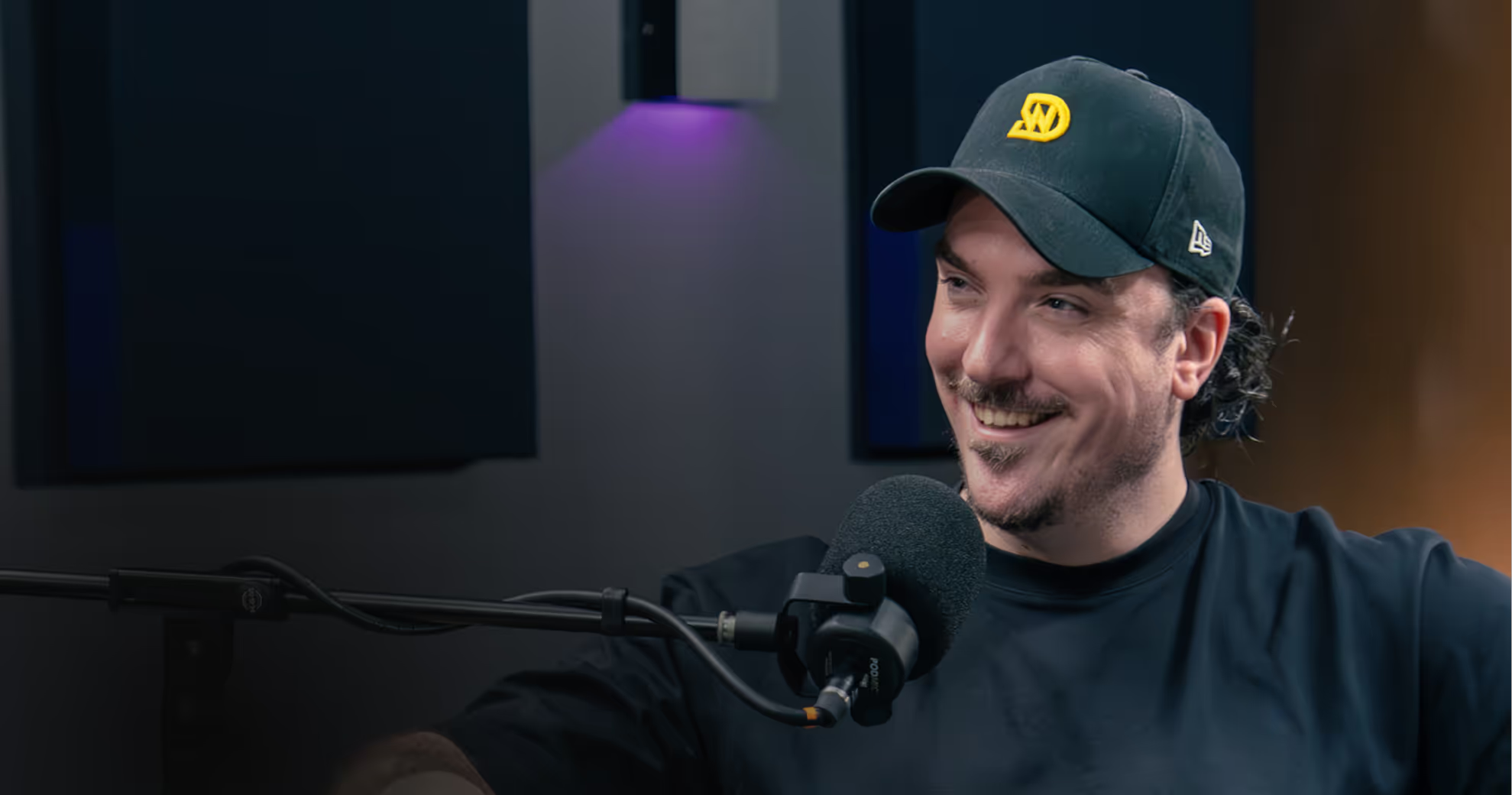
Work With Me

Enquire With Dain’s Team
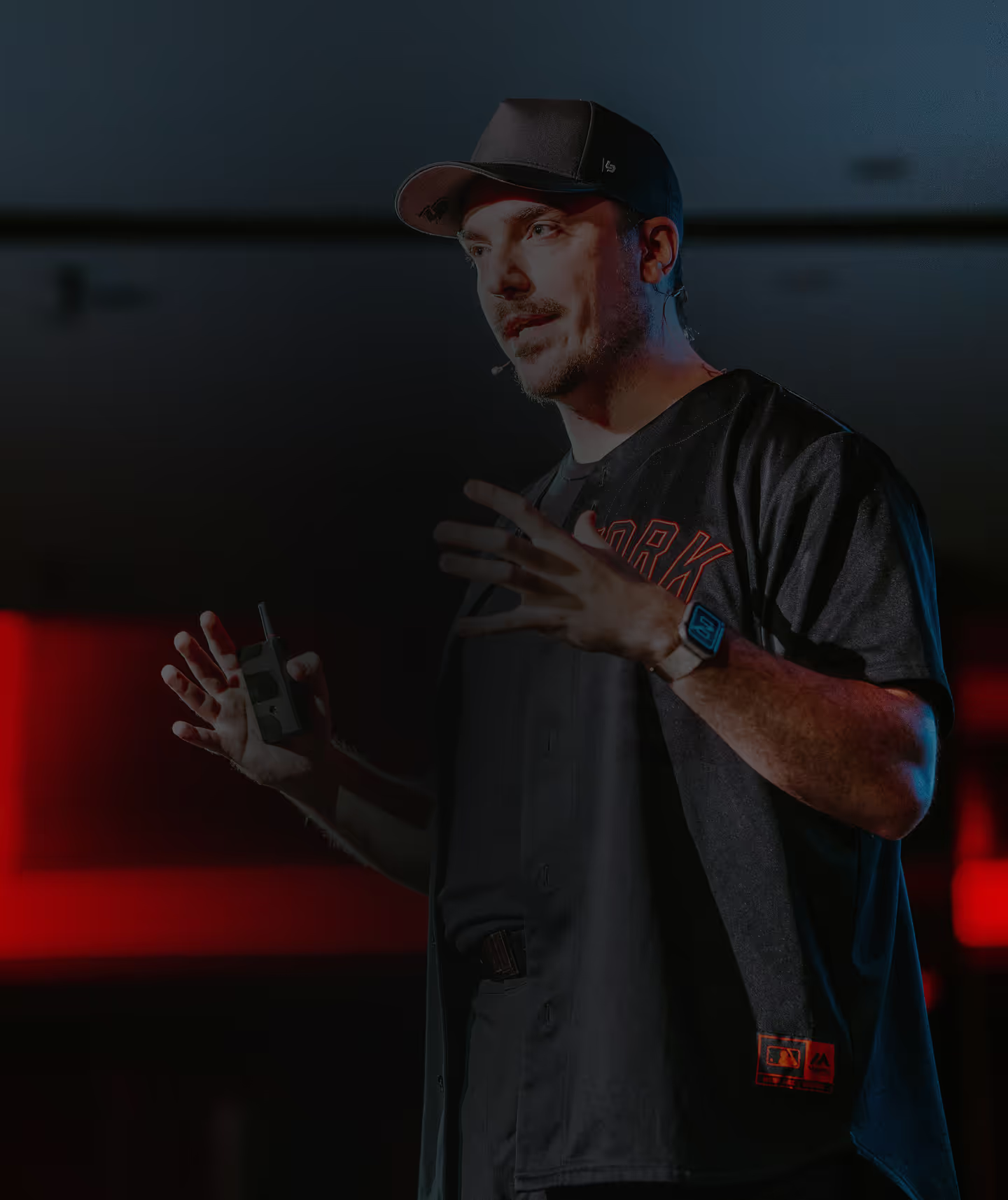
Enquire For Speaking

Let's Get You Branded
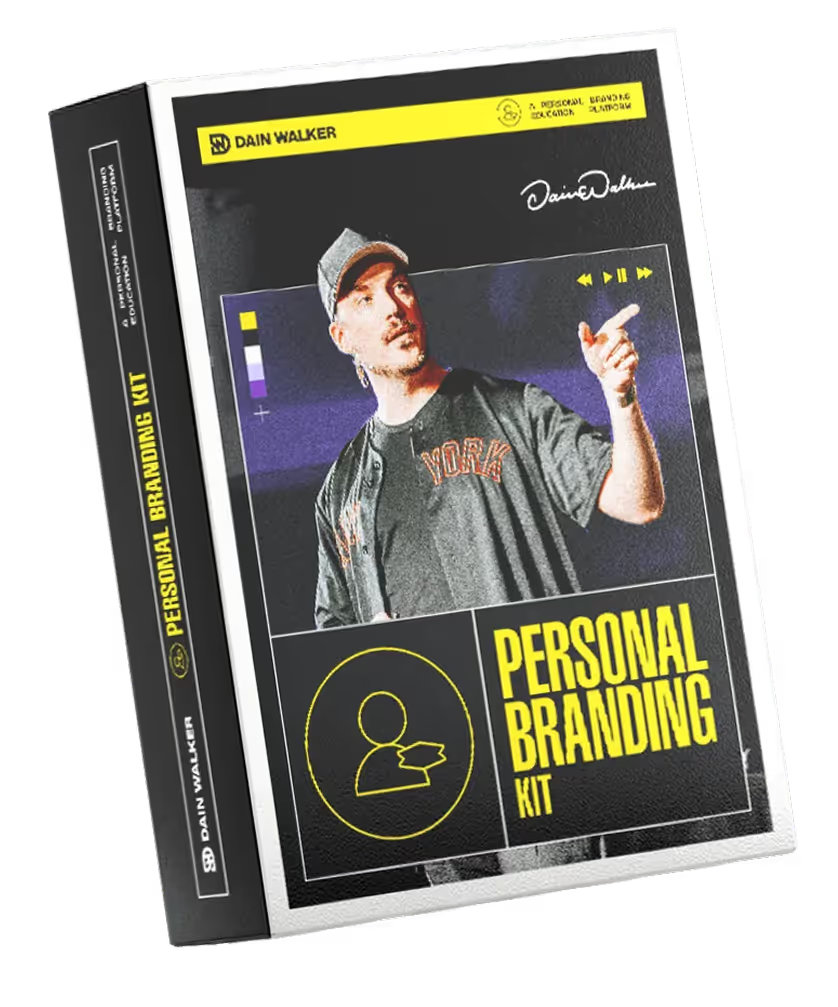
Apply to be a guest
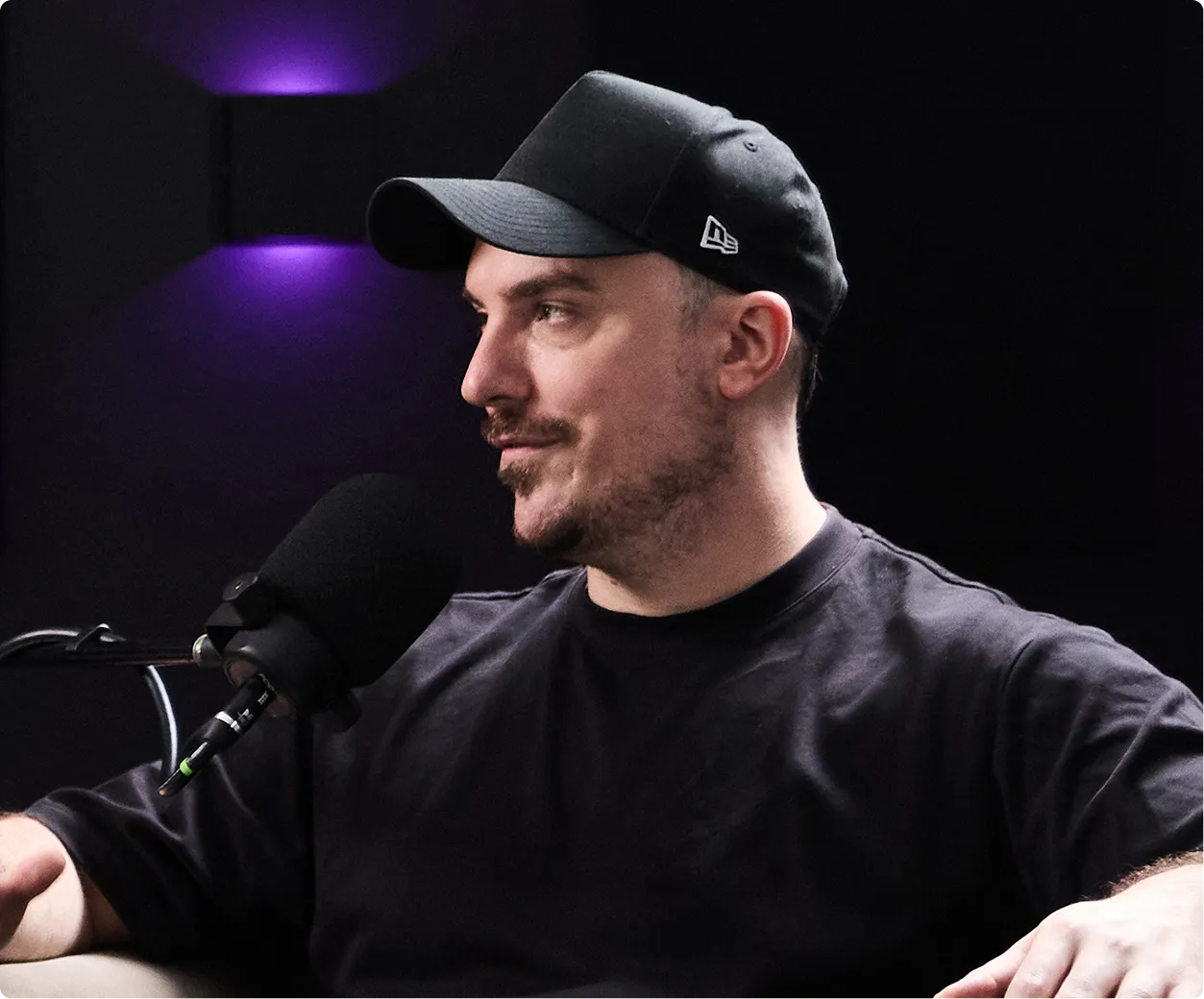
Dive into insights from industry leaders and experts.
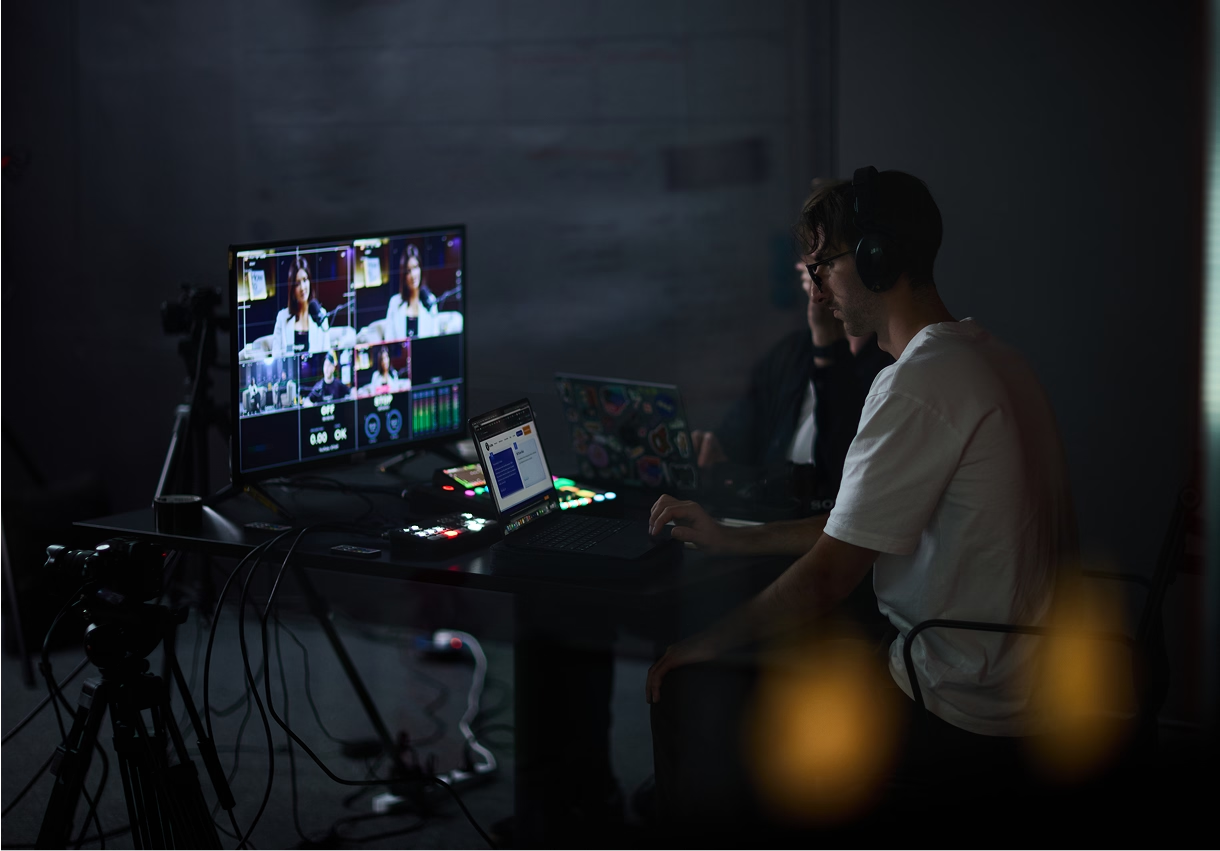
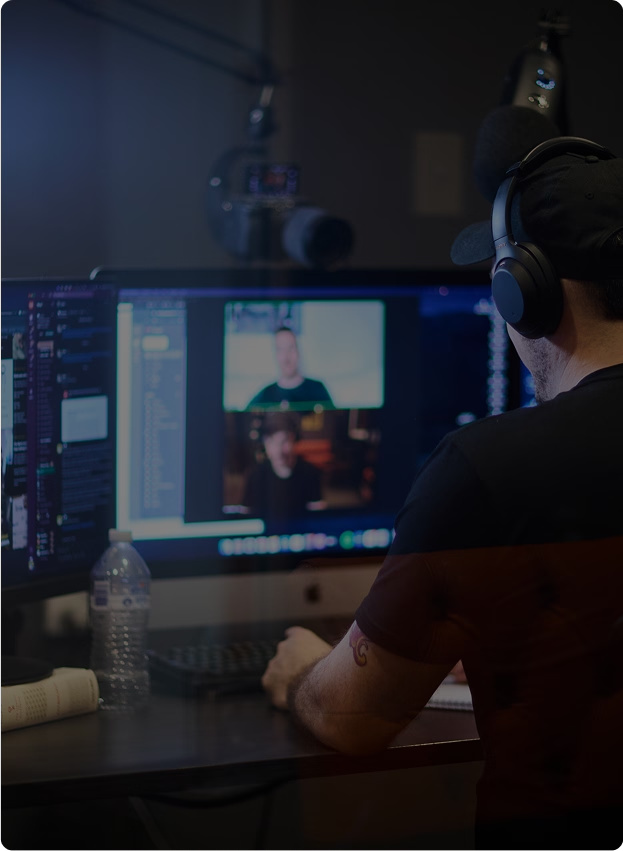
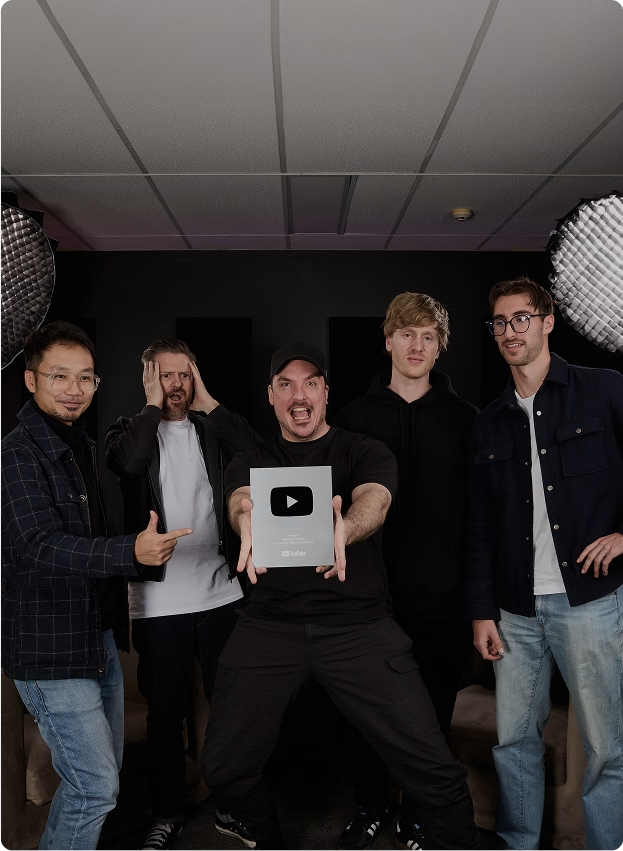
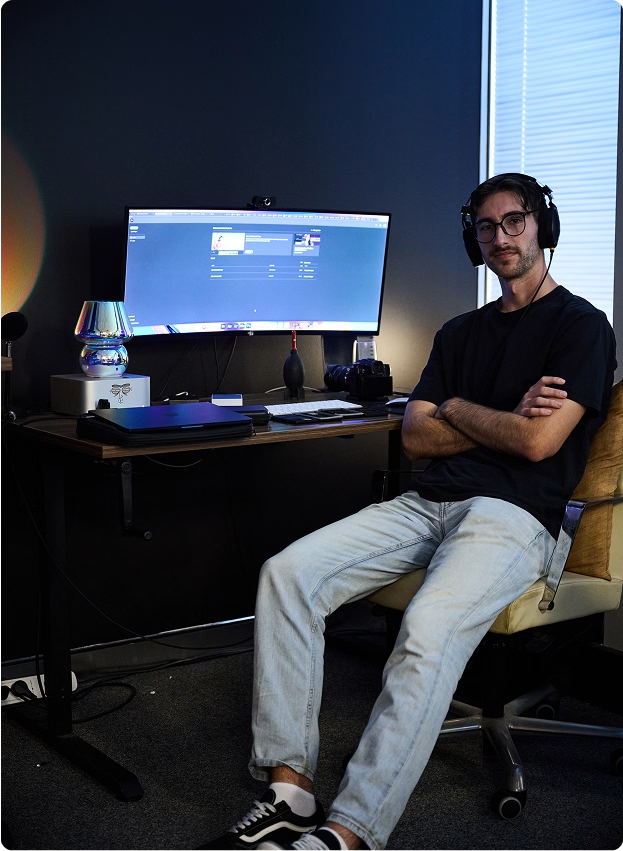
Stream now
Dive into expert advice and industry trends.
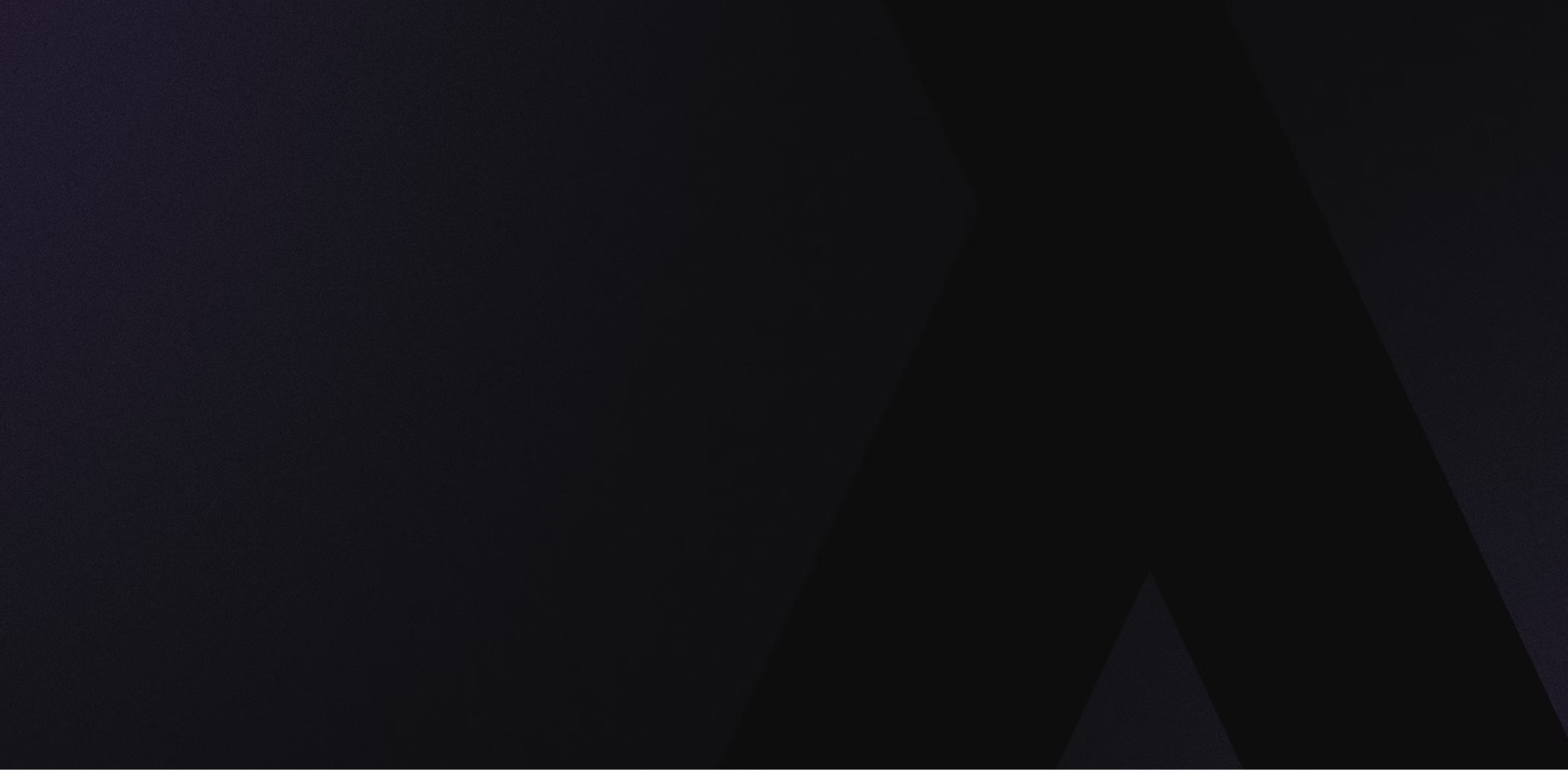

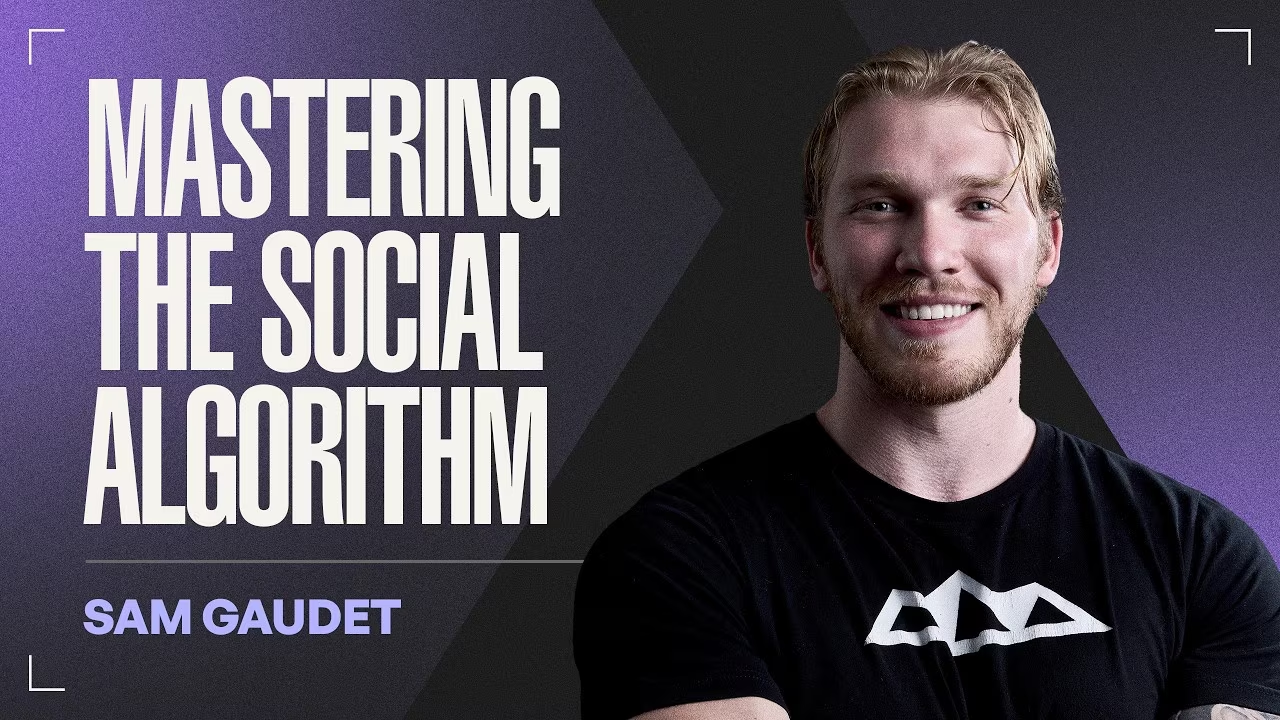
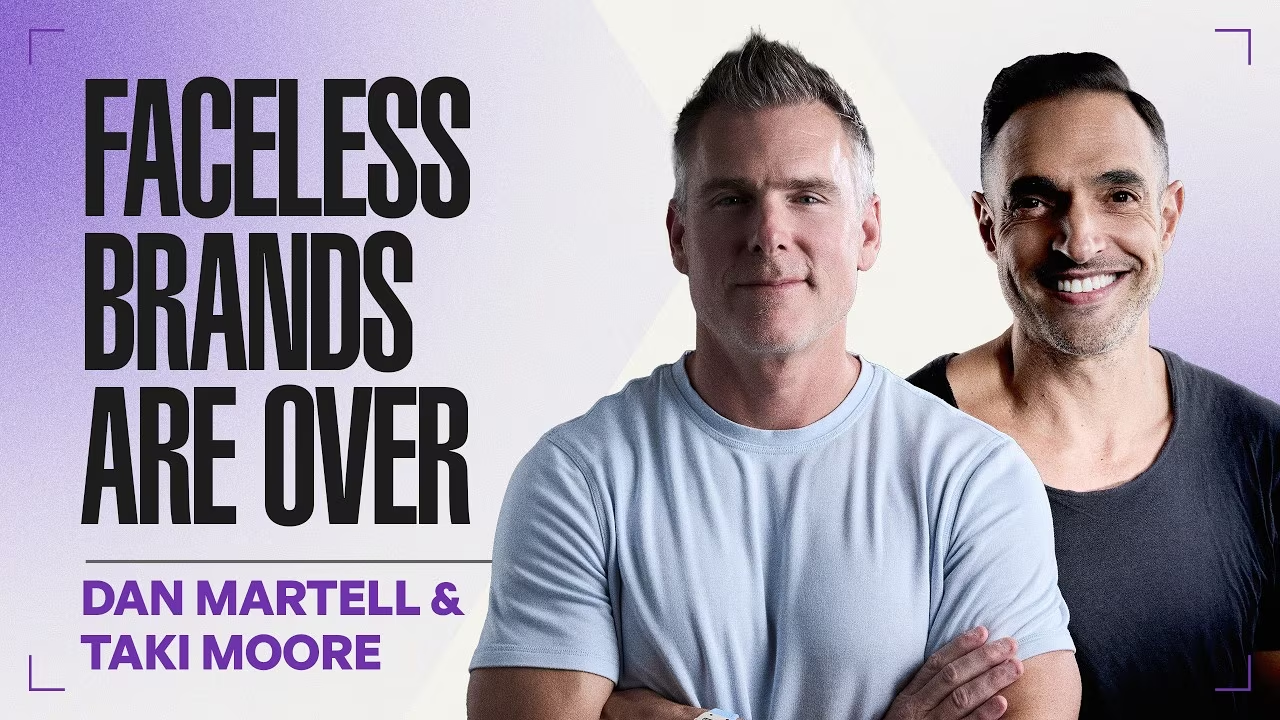
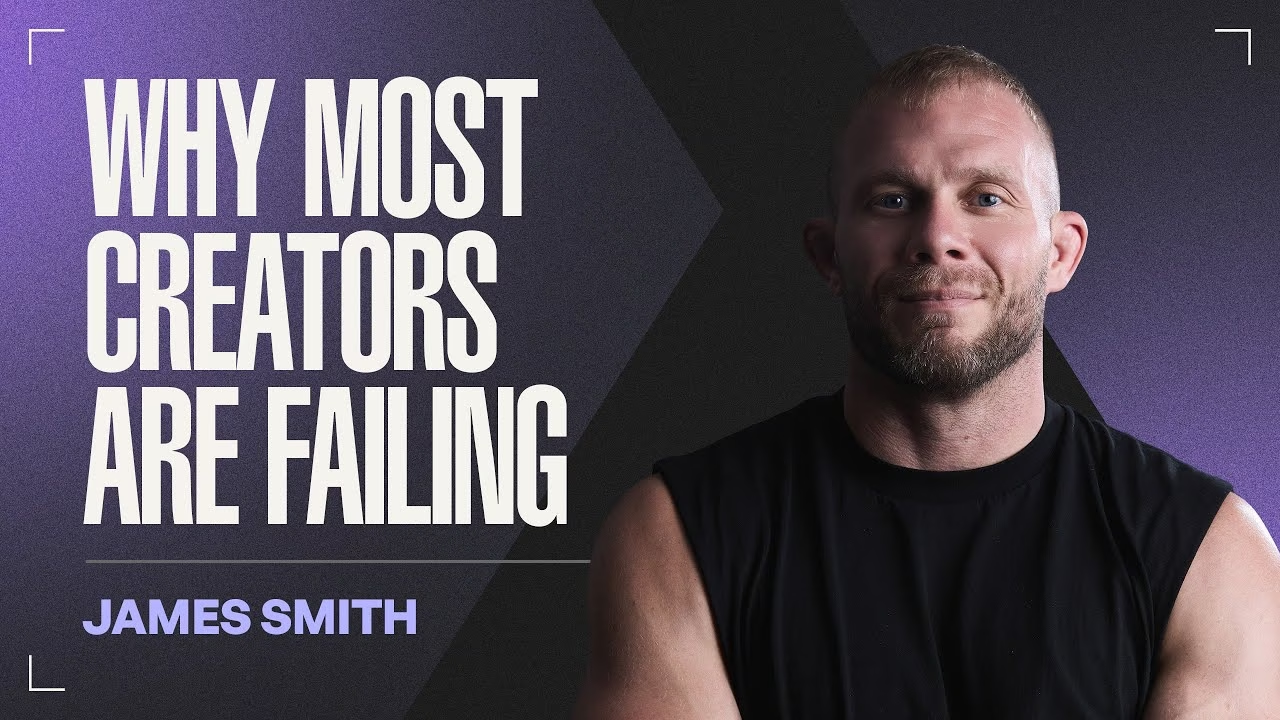
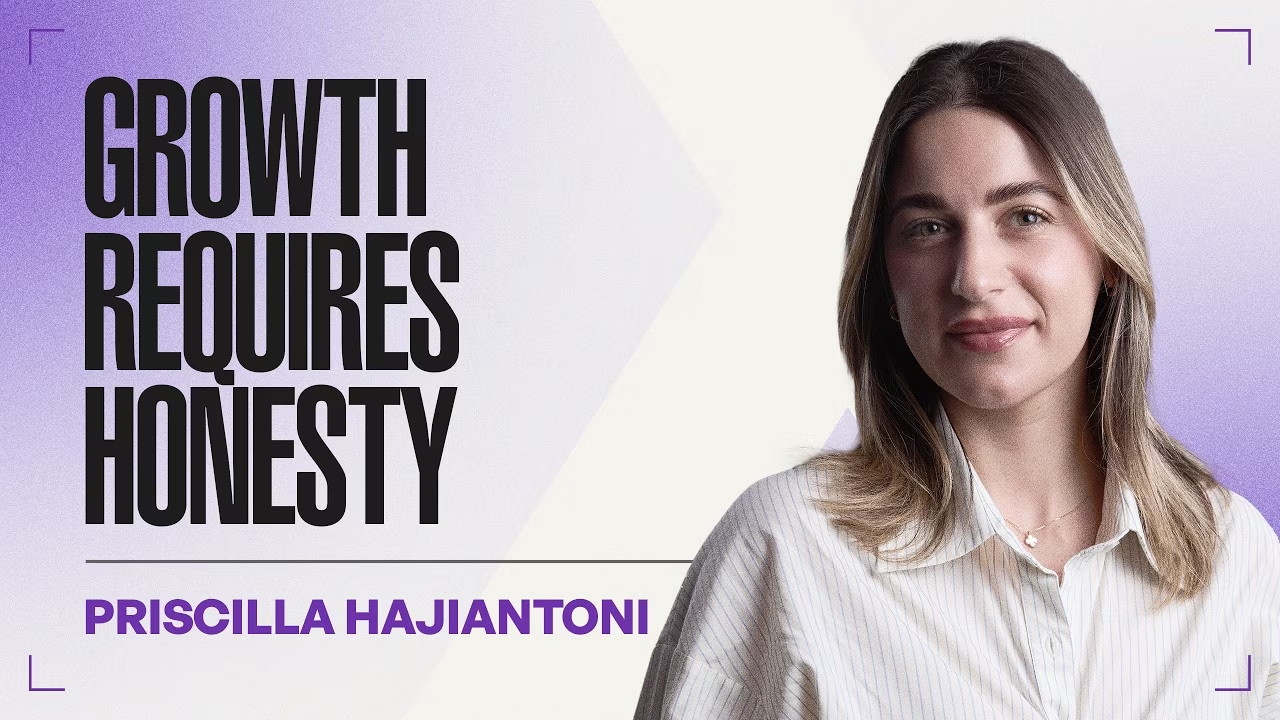
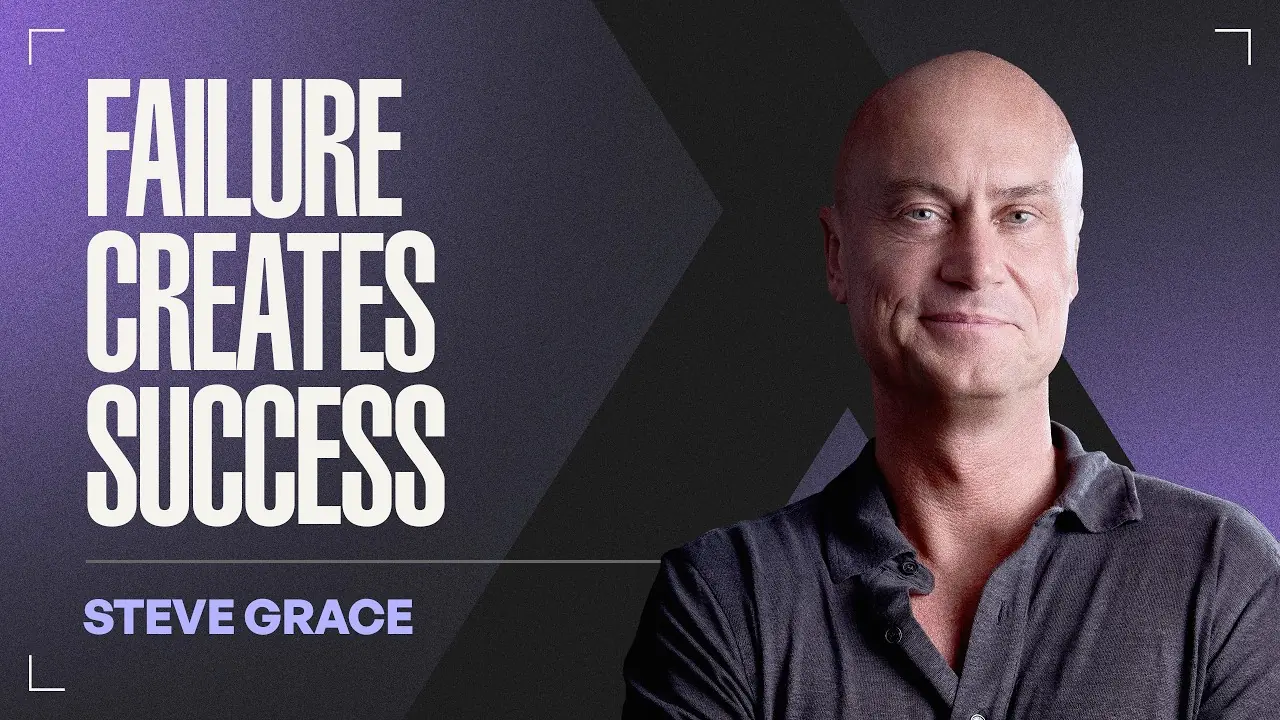
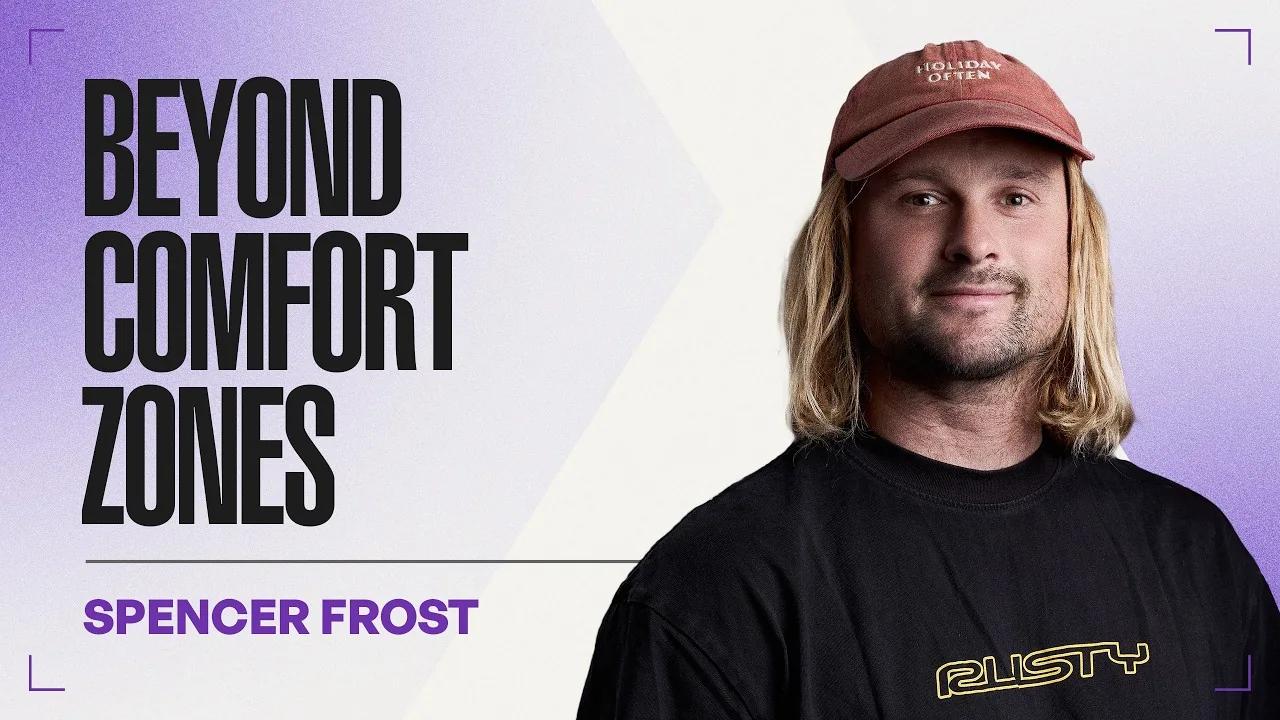
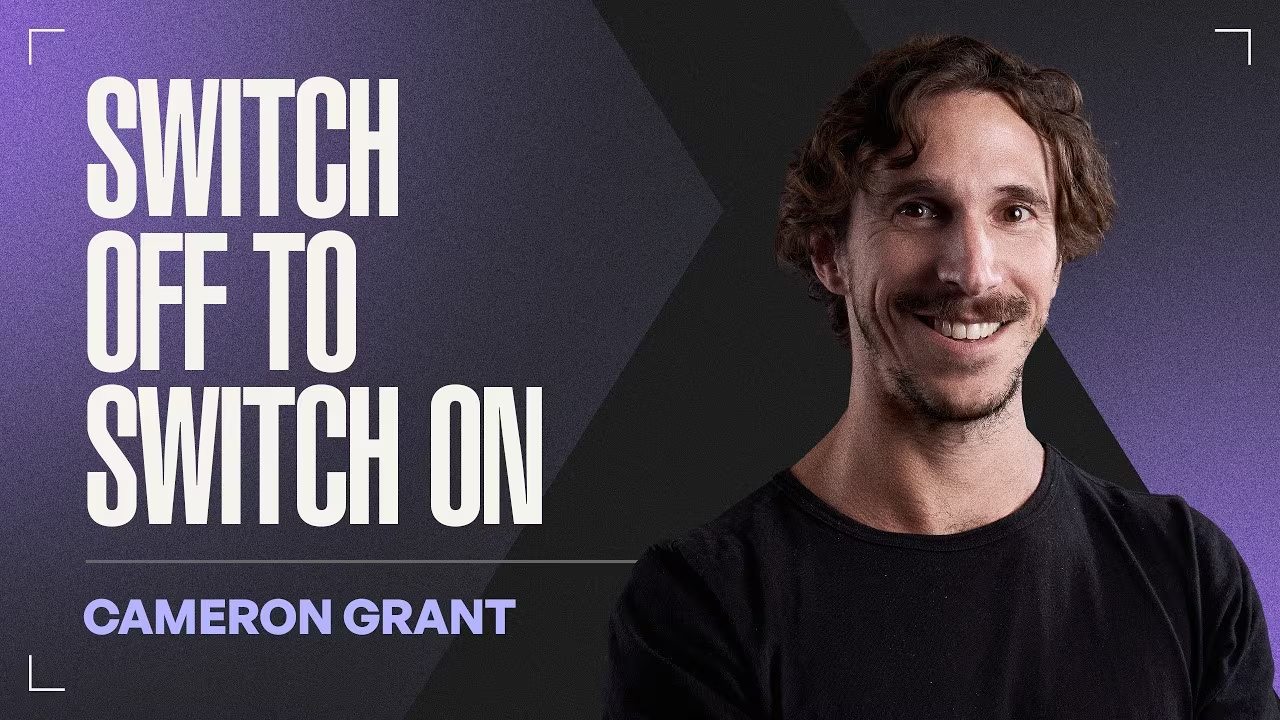
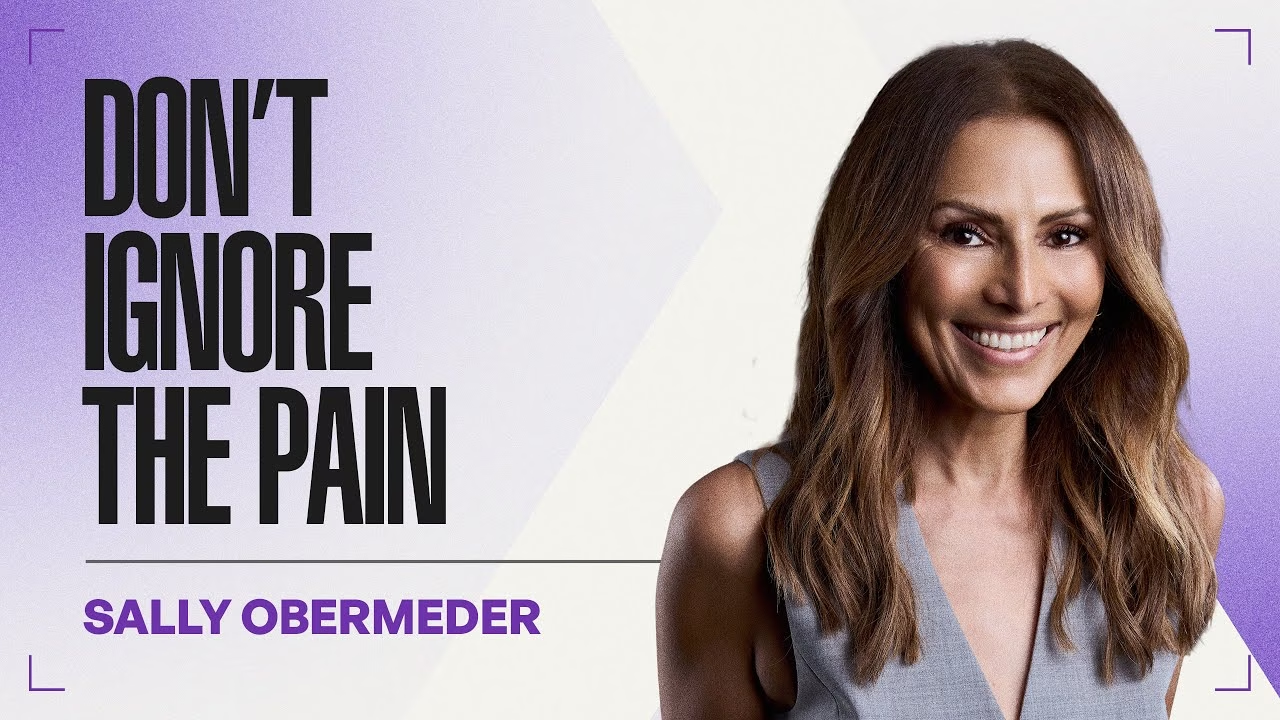
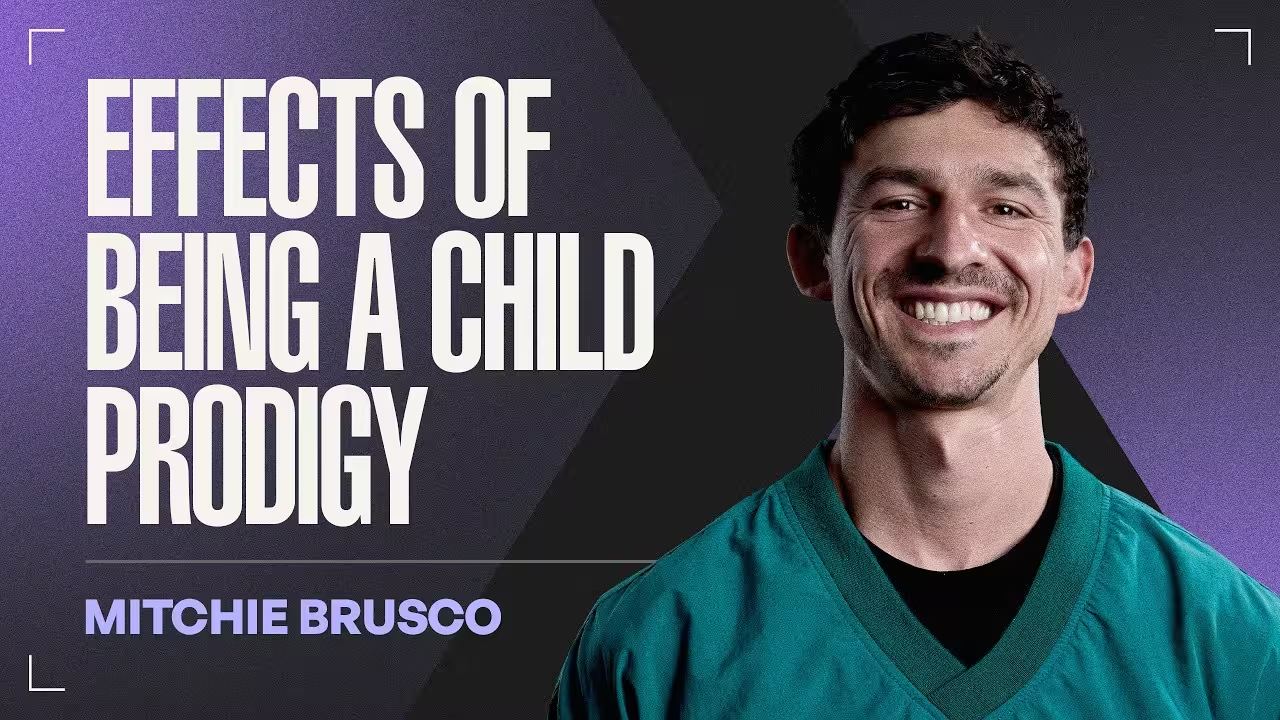
.avif)
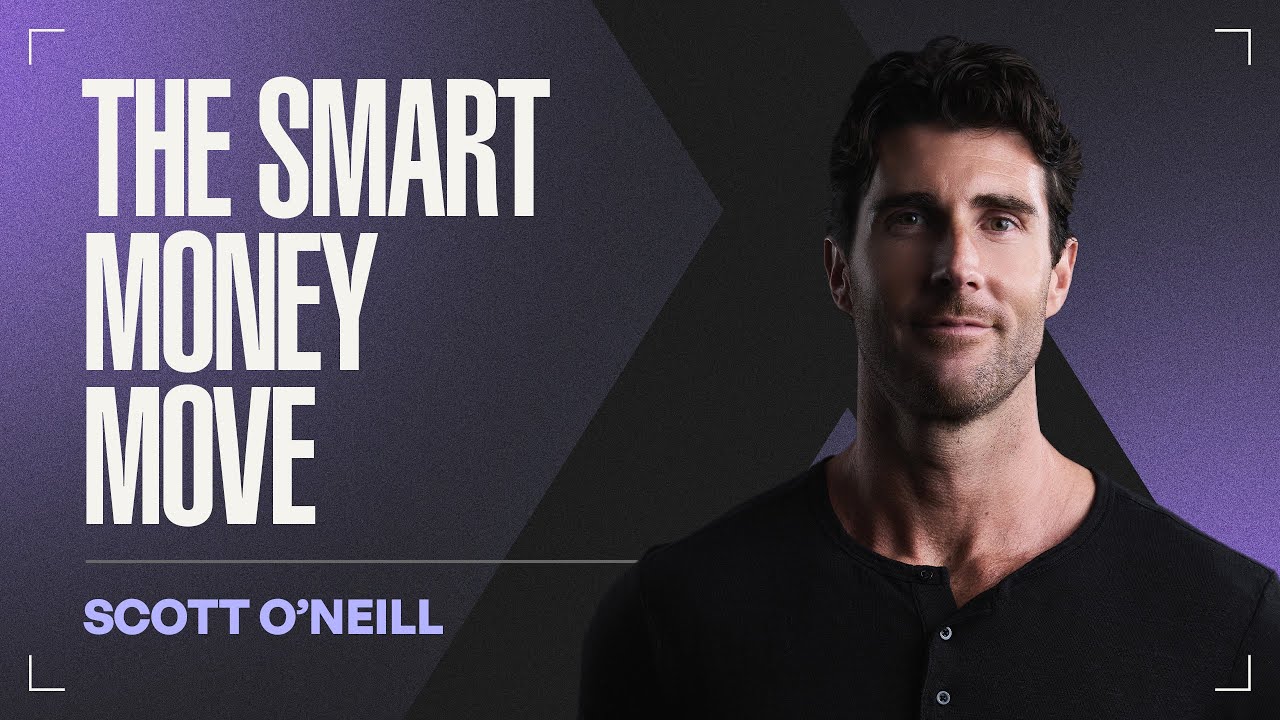
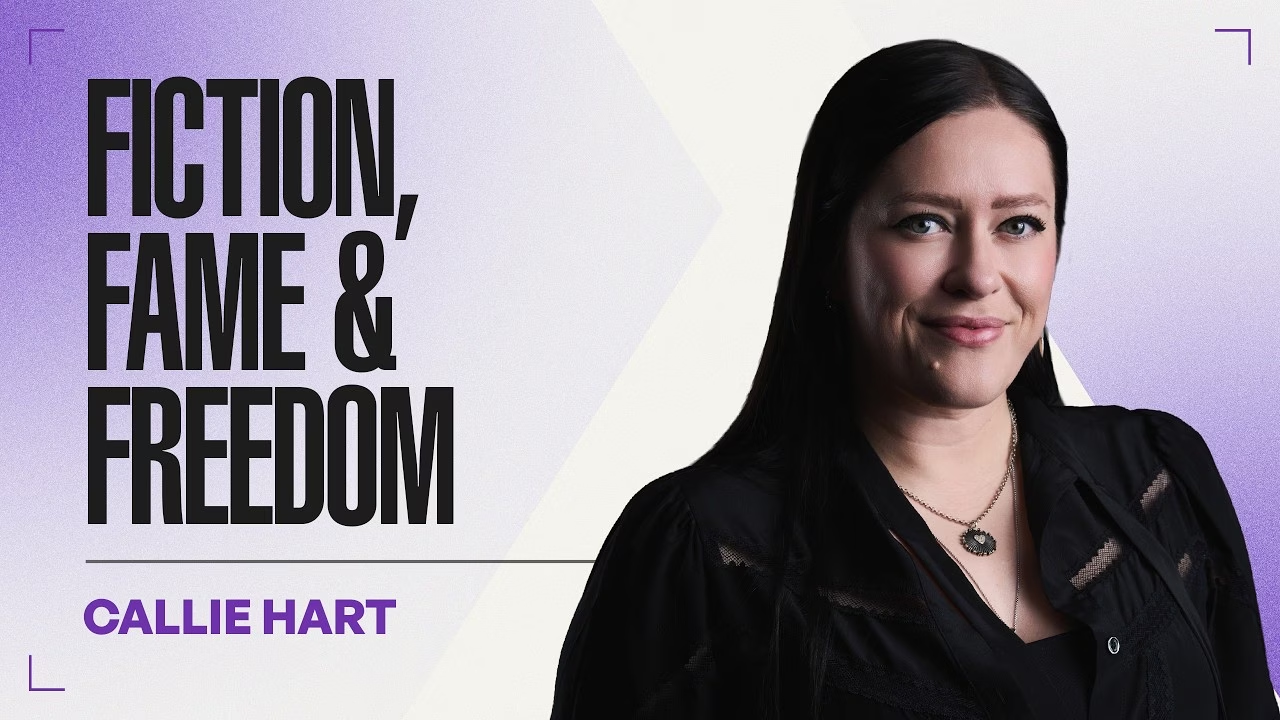

.avif)
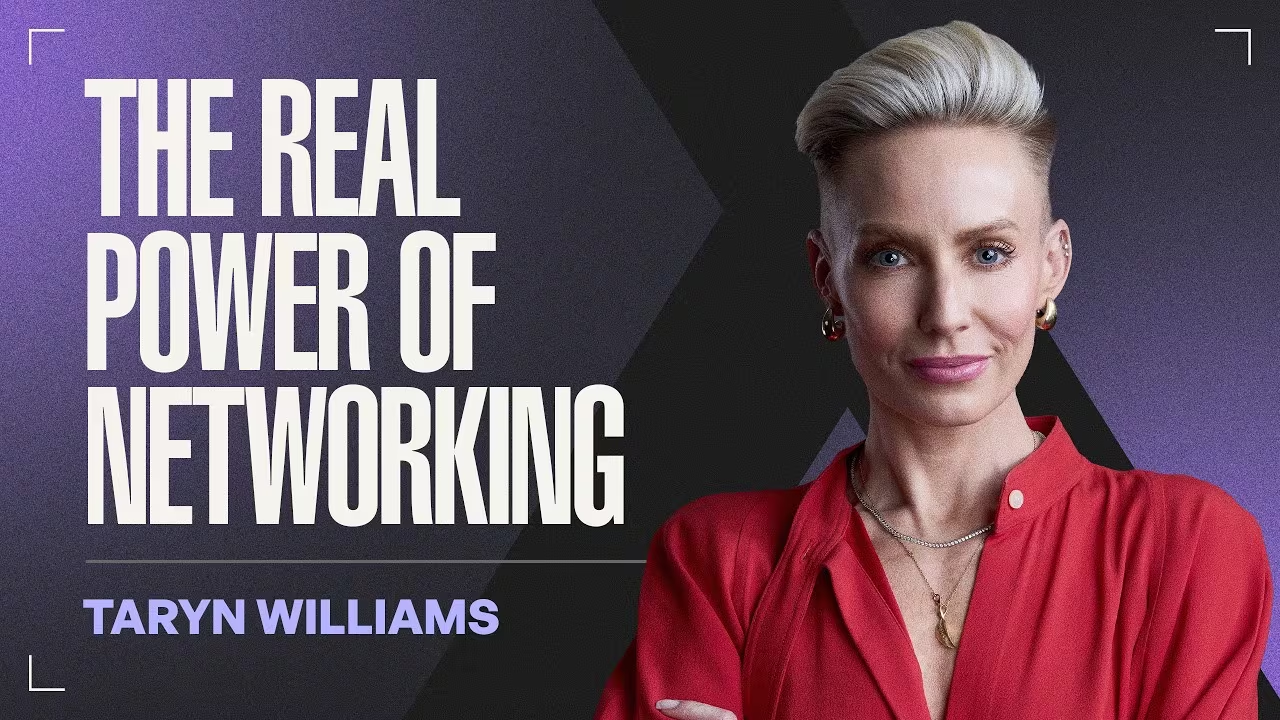
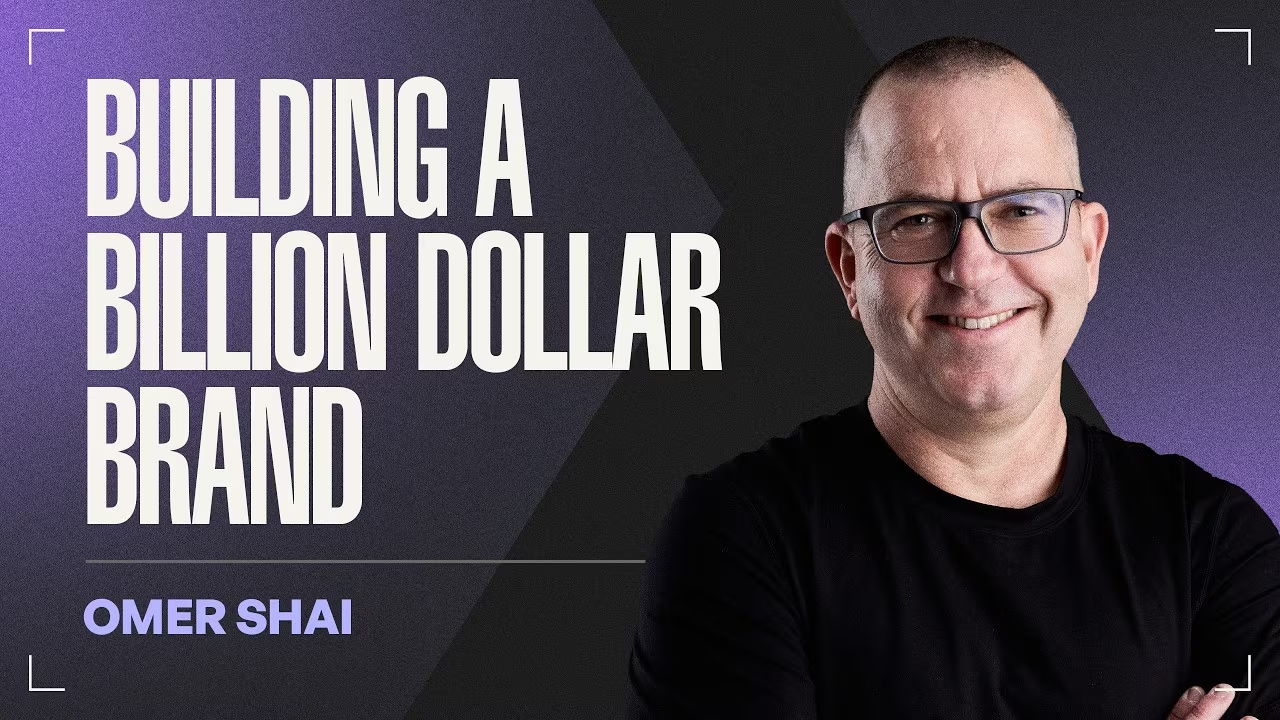
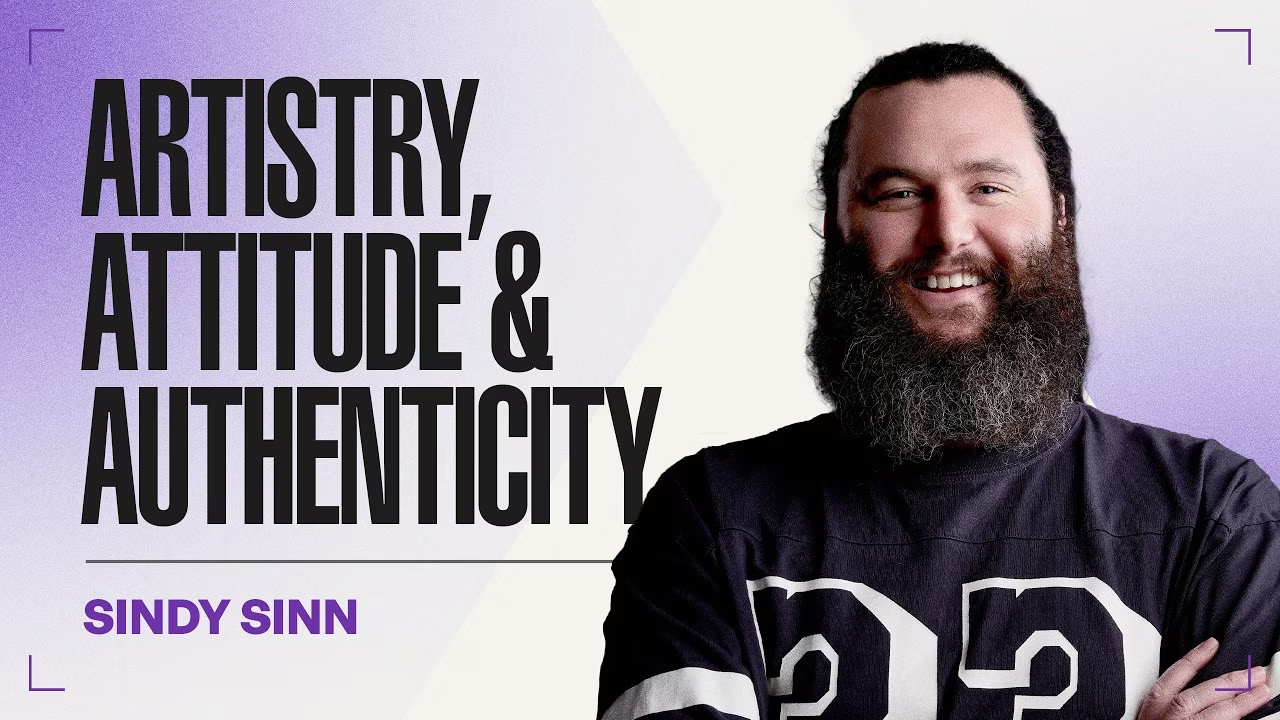
%20(1).avif)
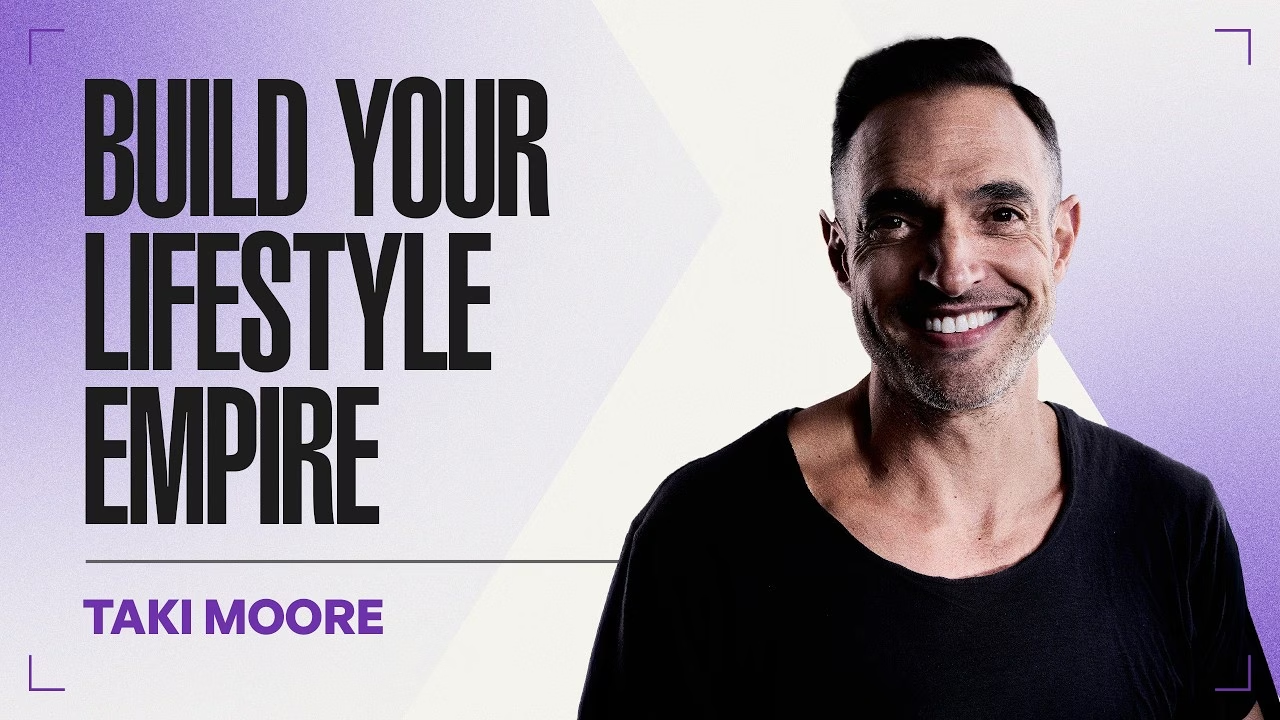
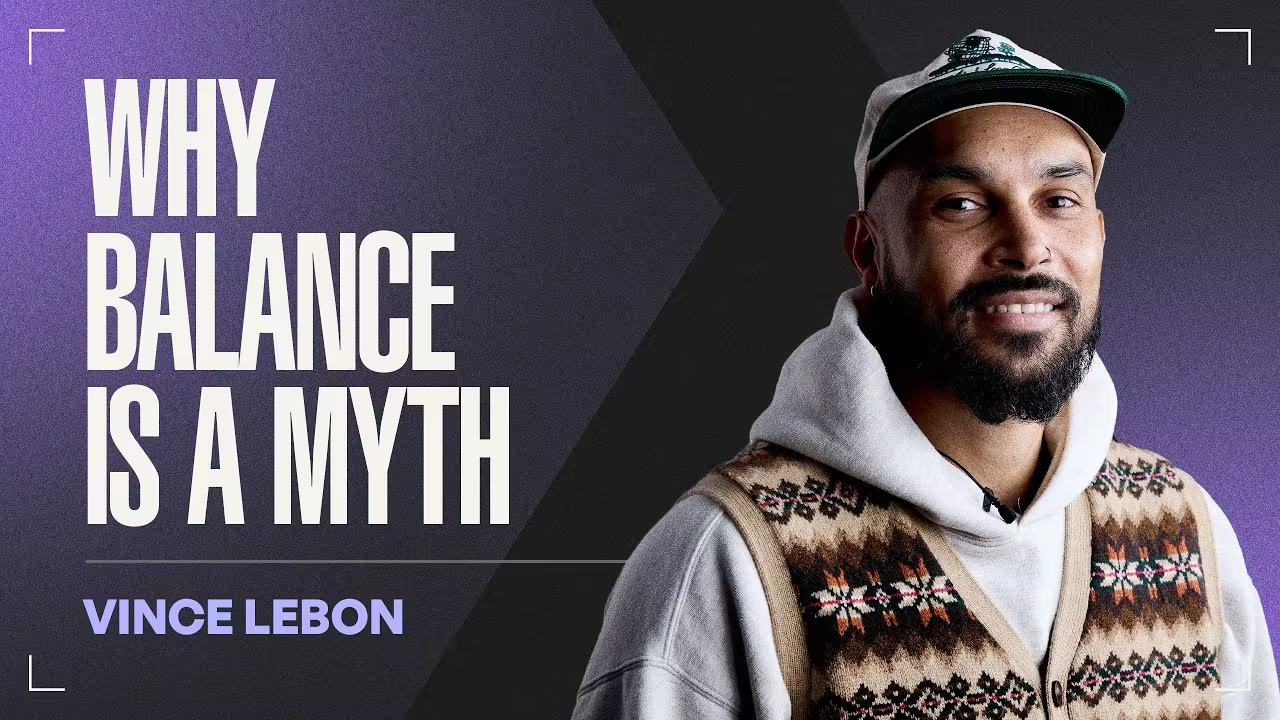
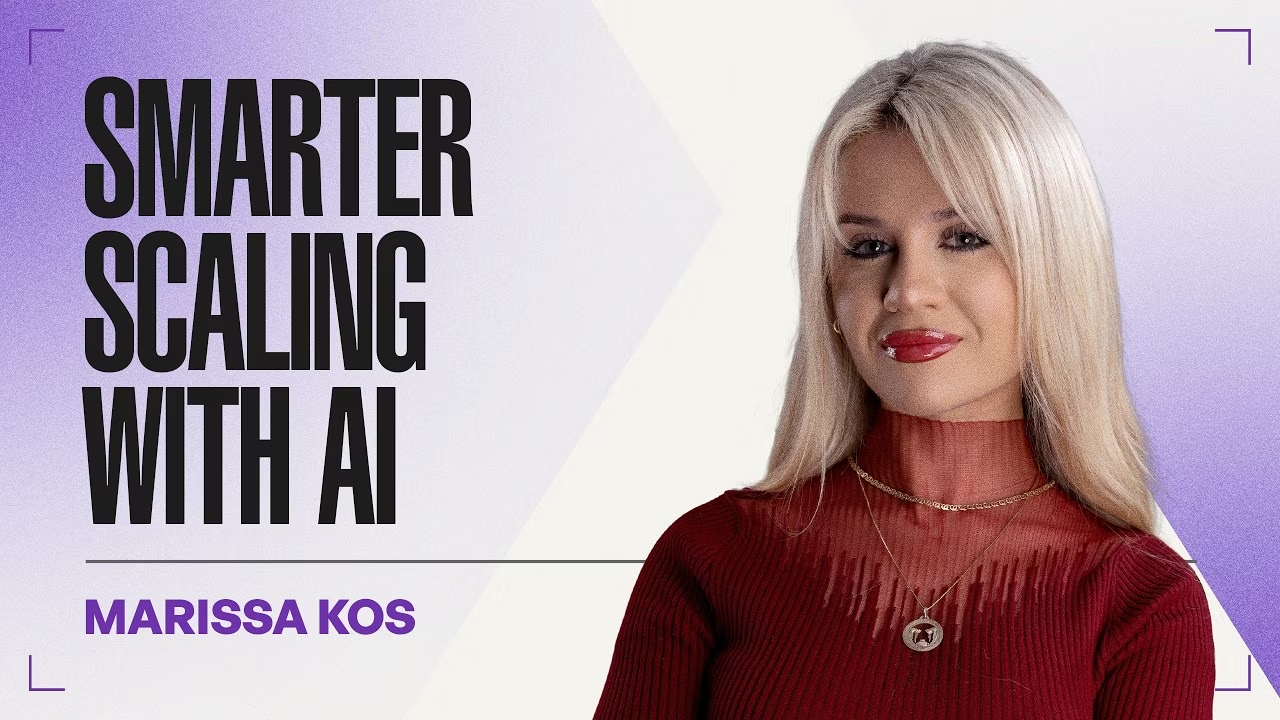
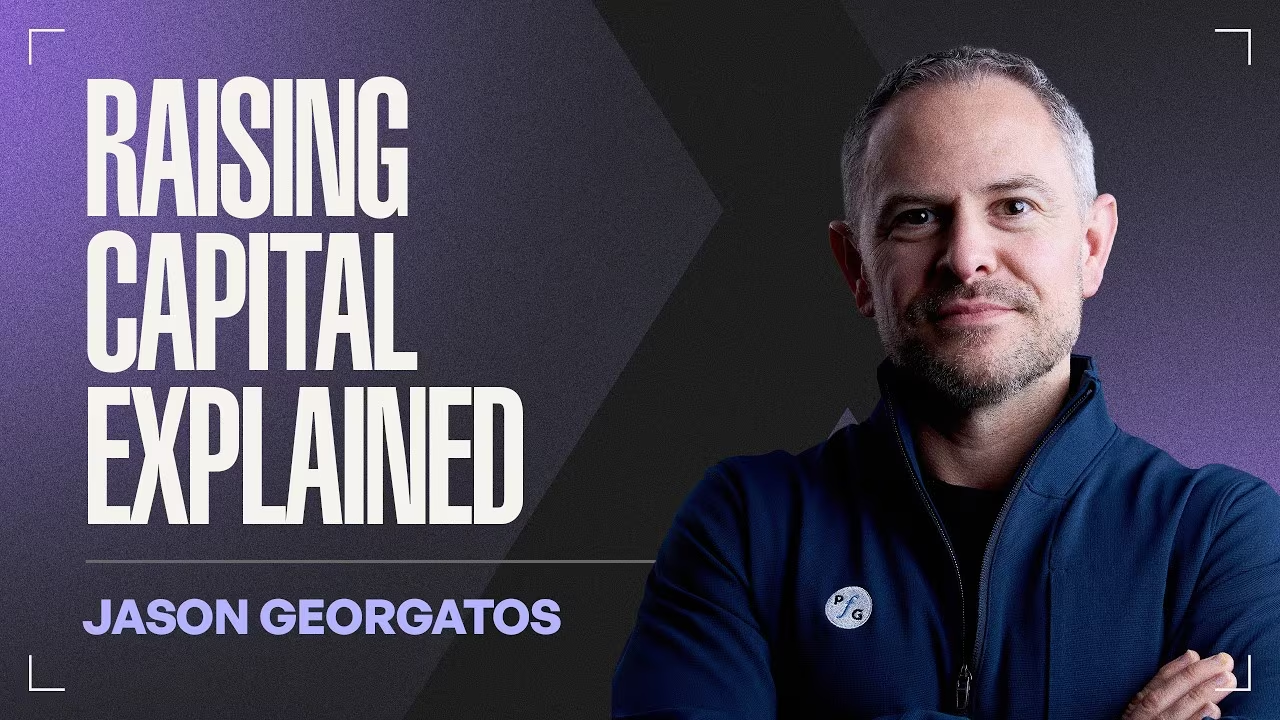
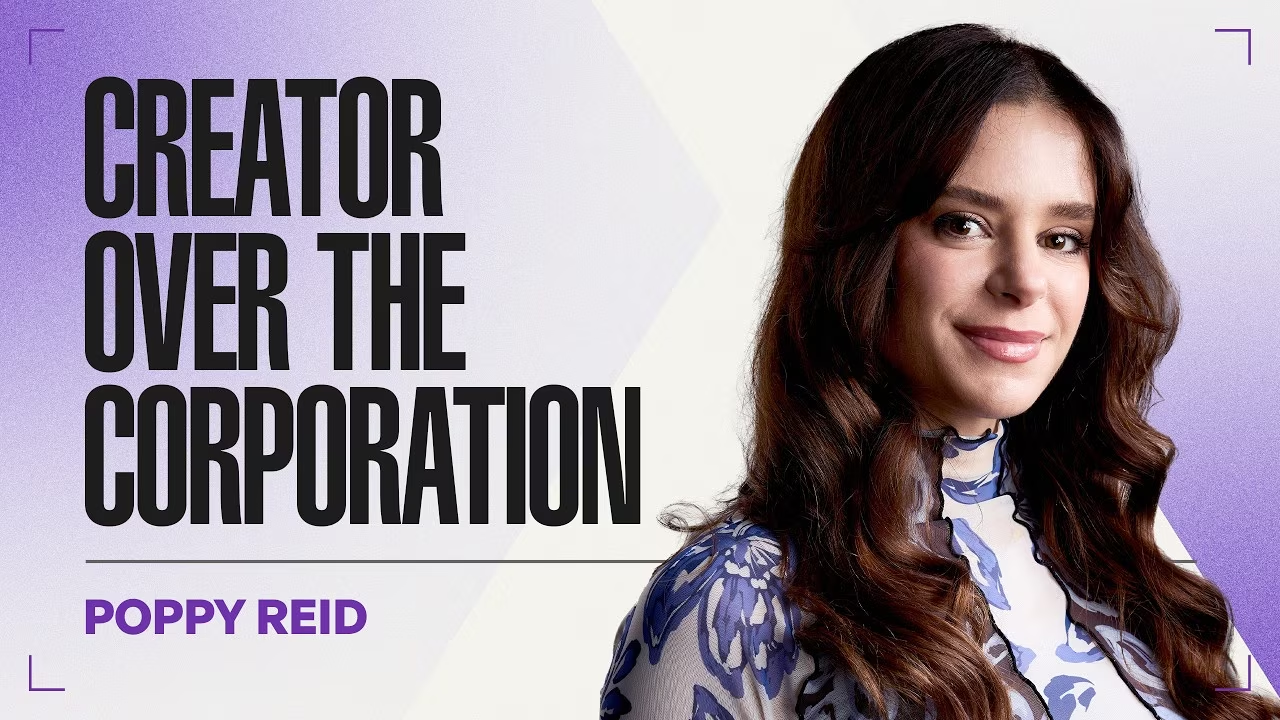
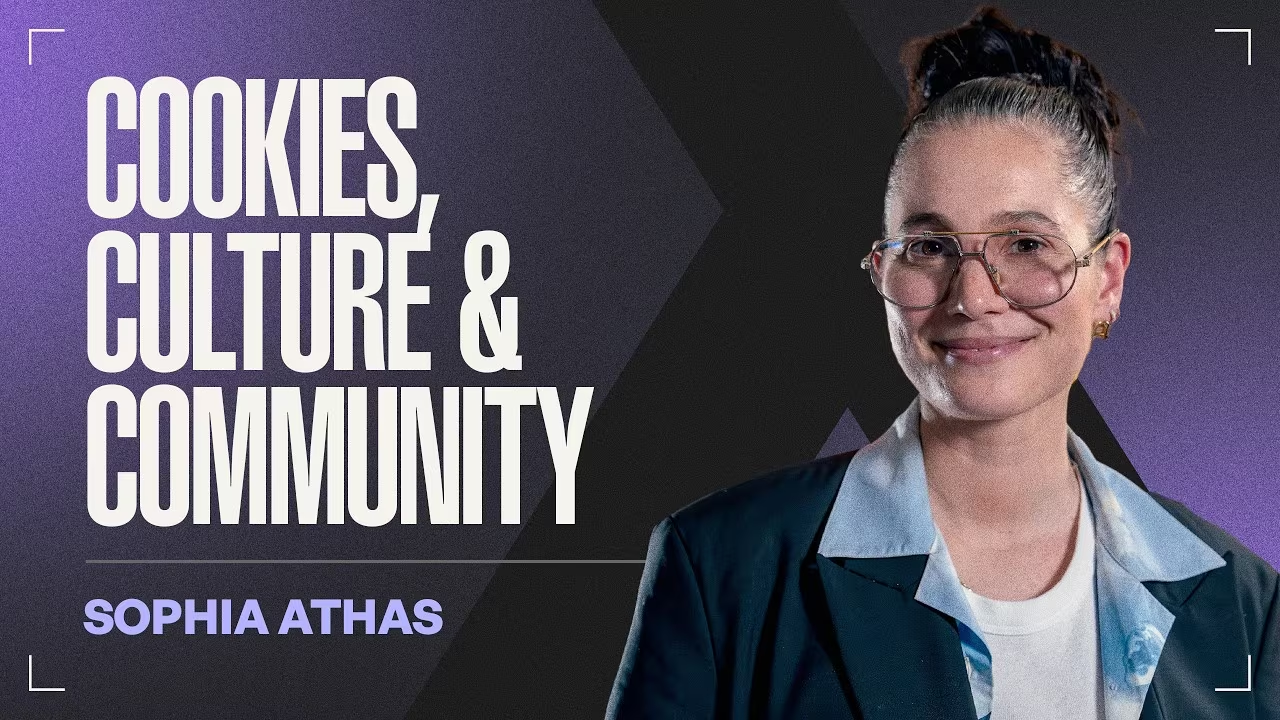

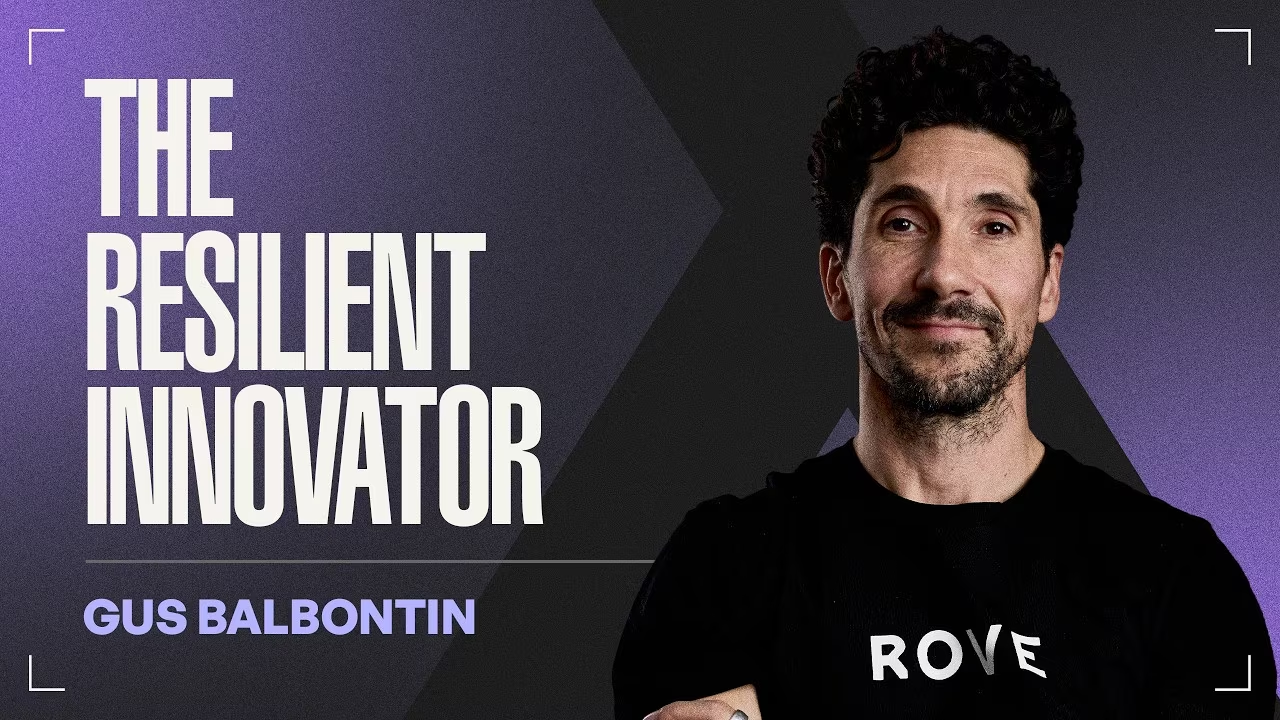
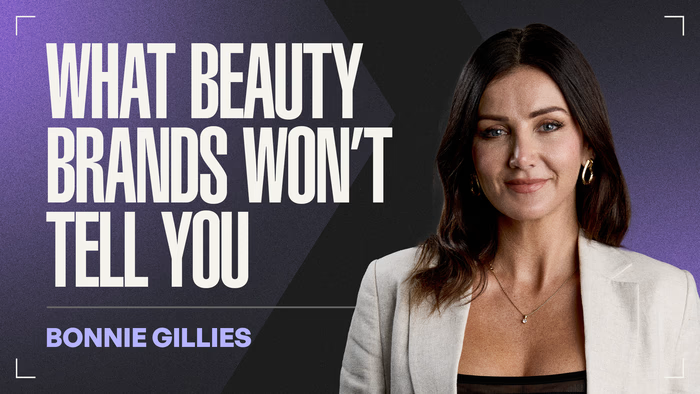


.avif)

